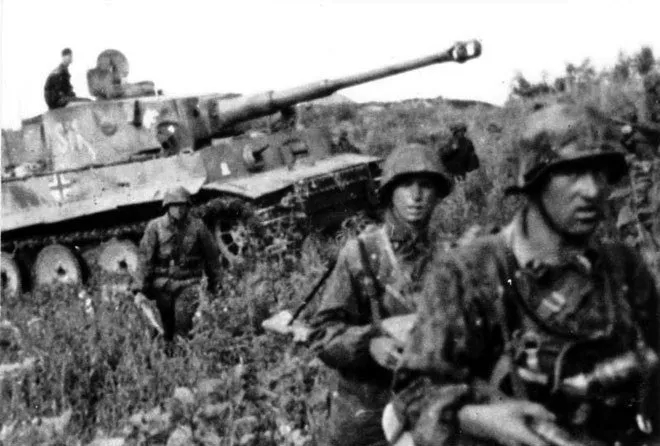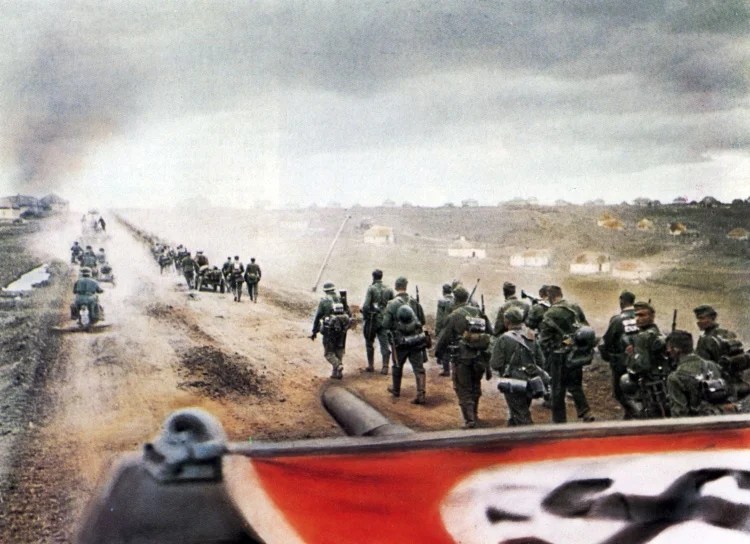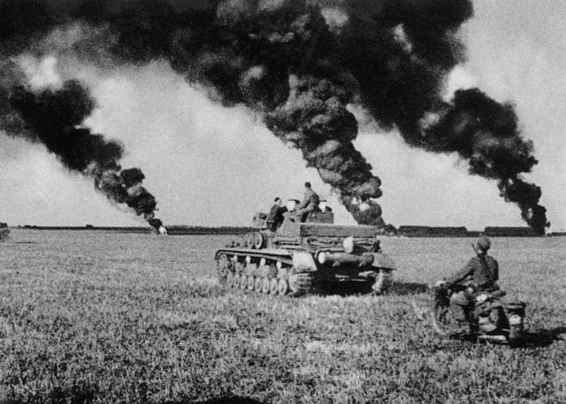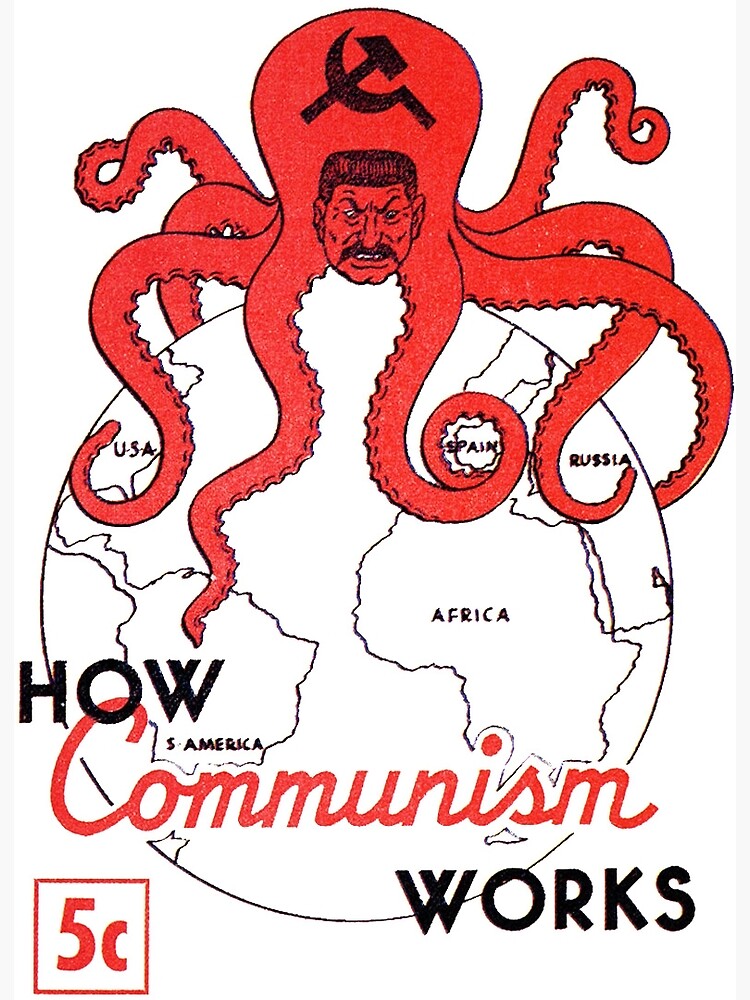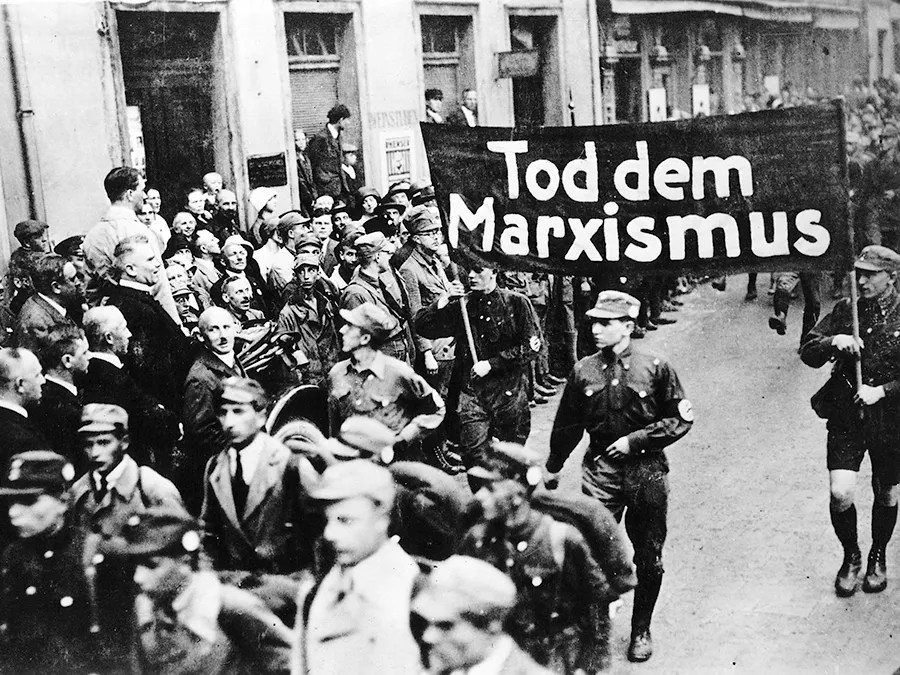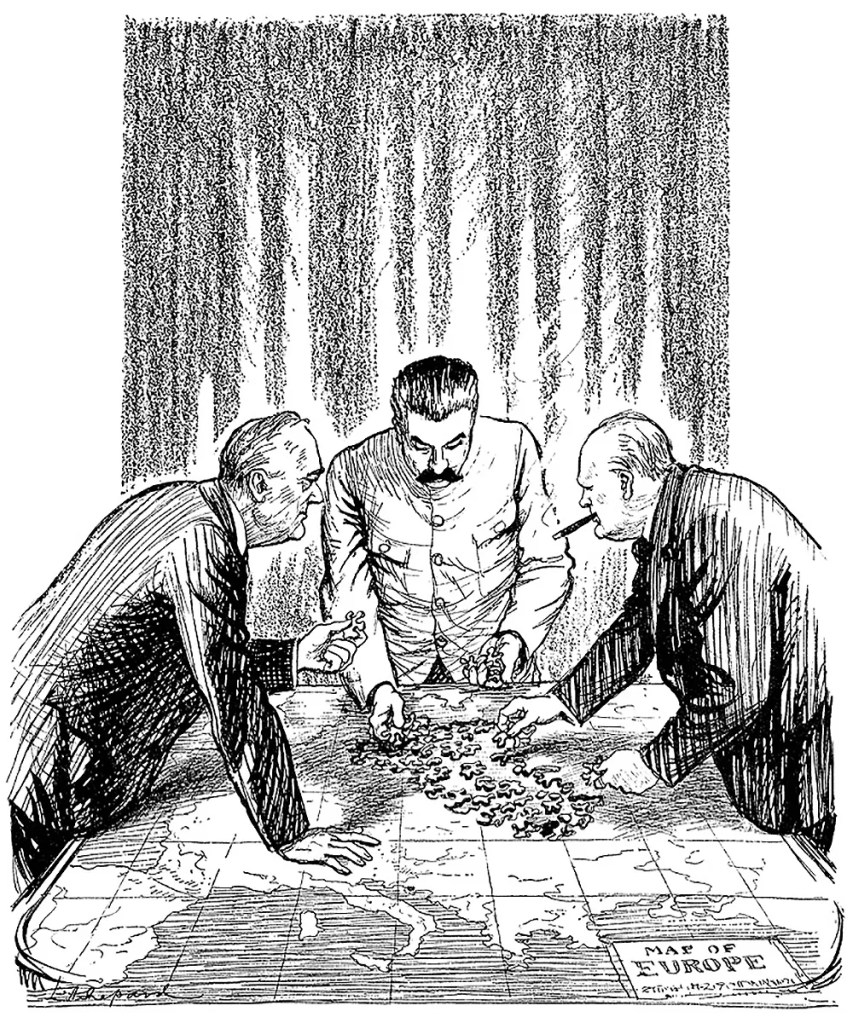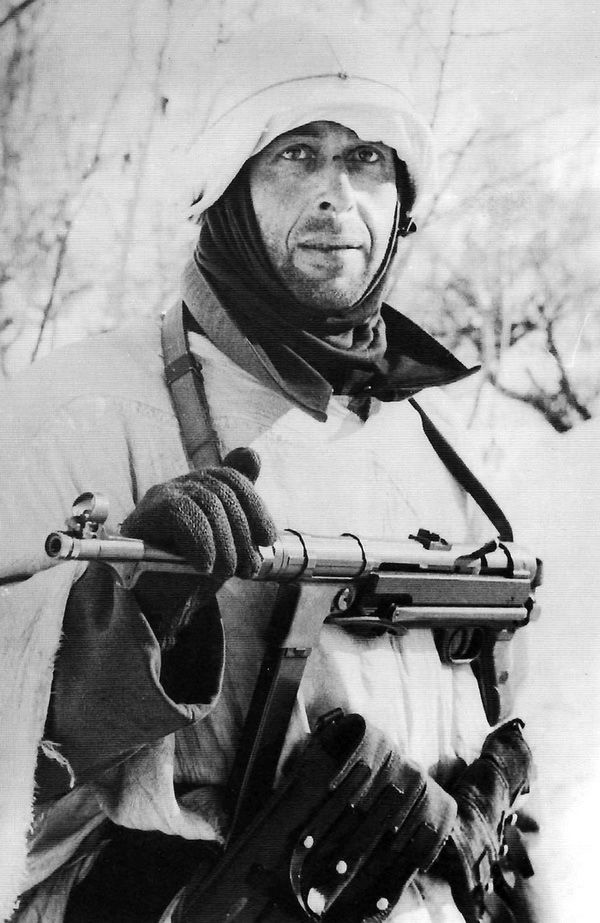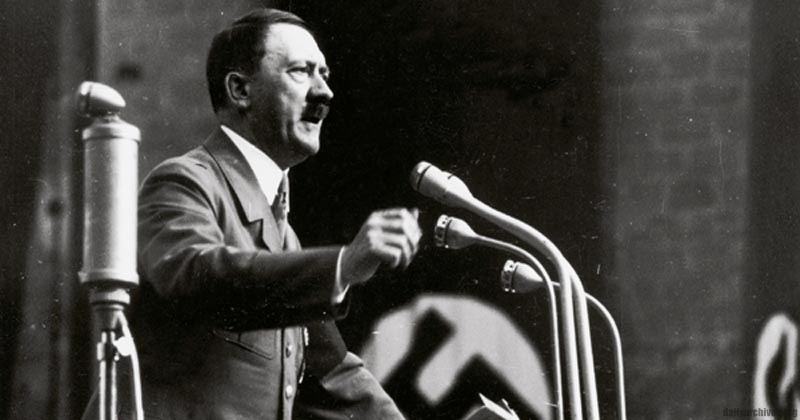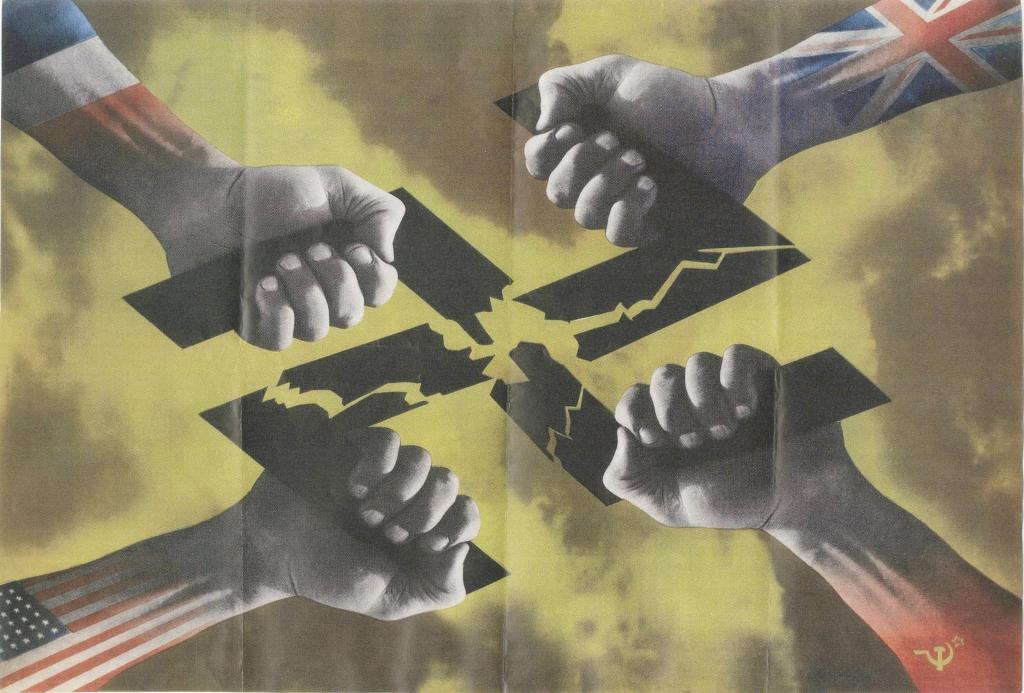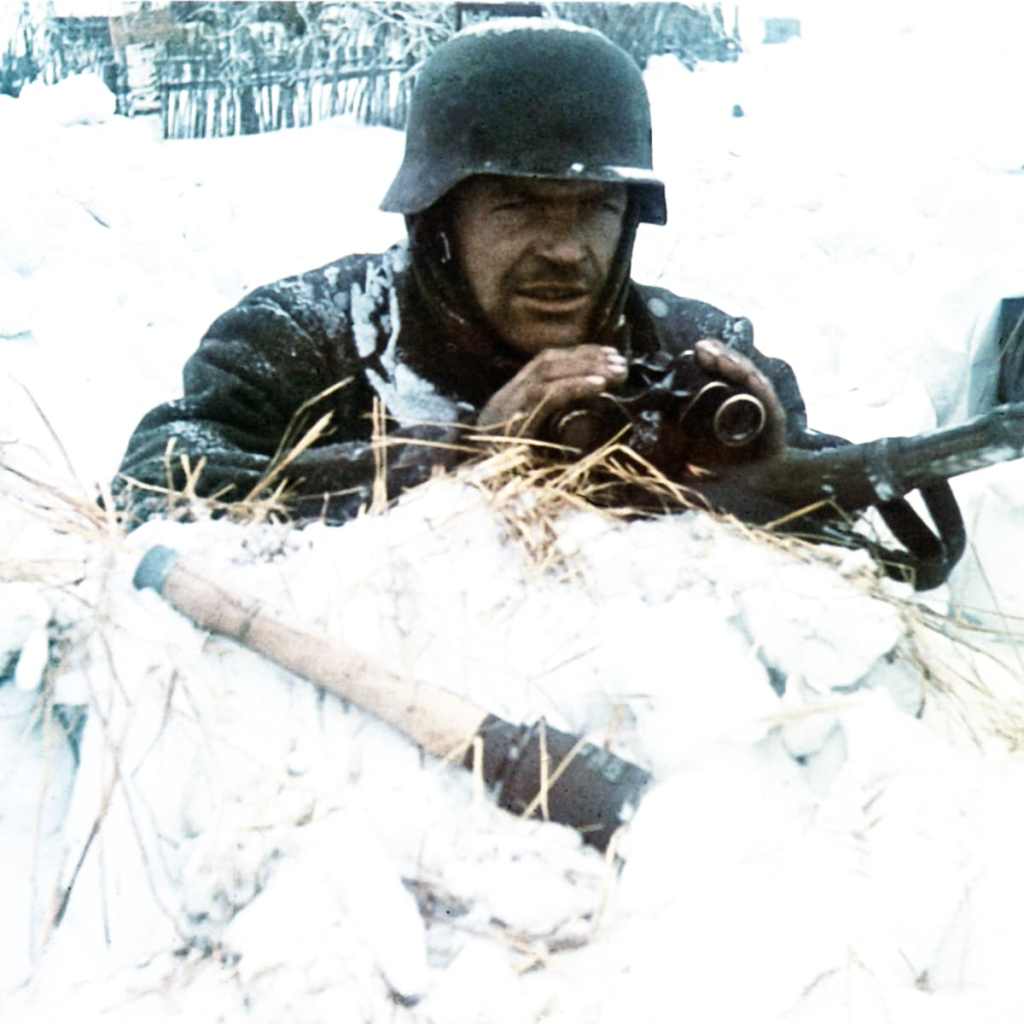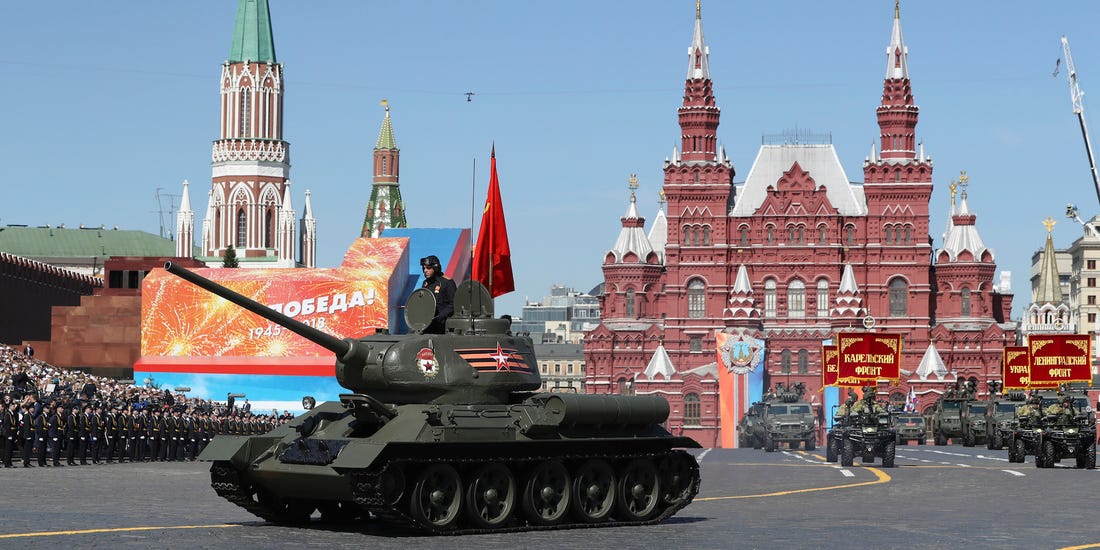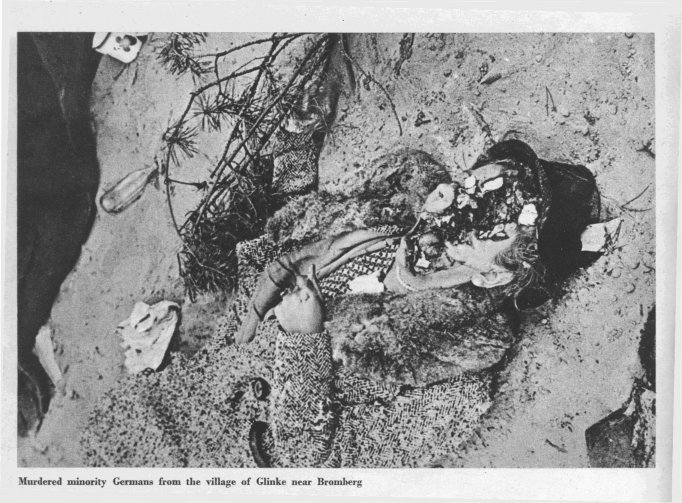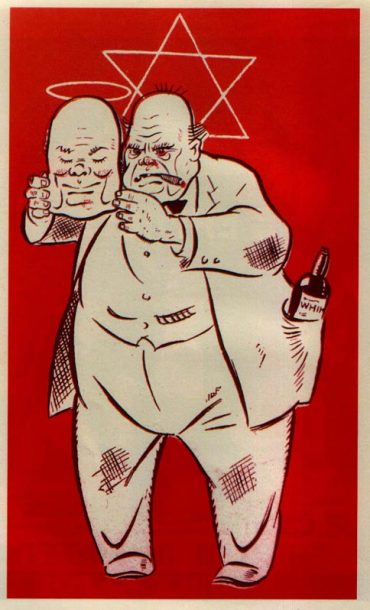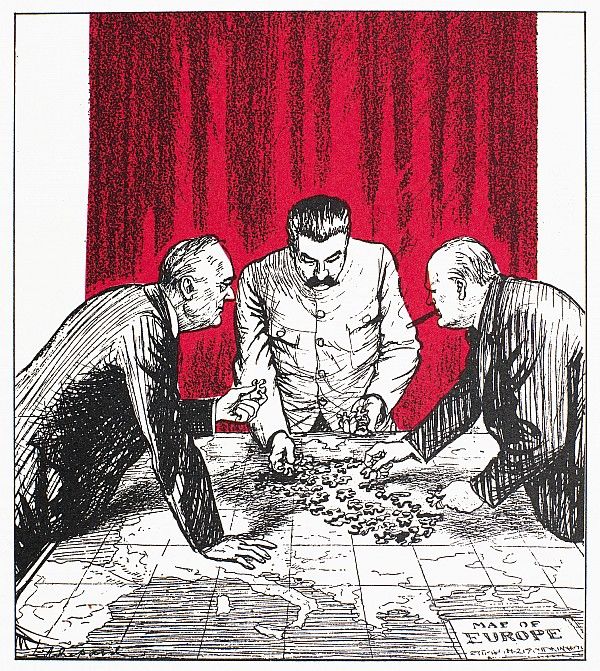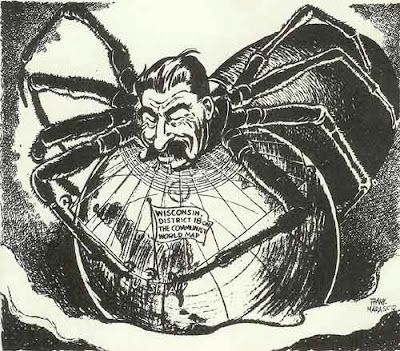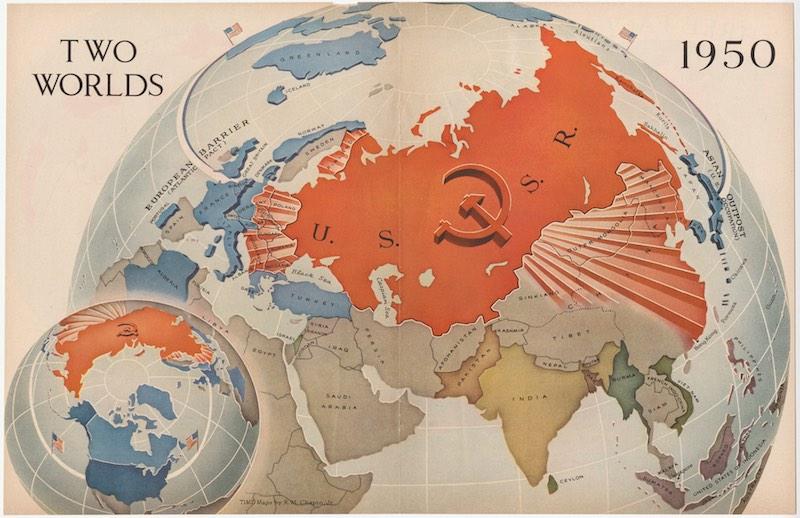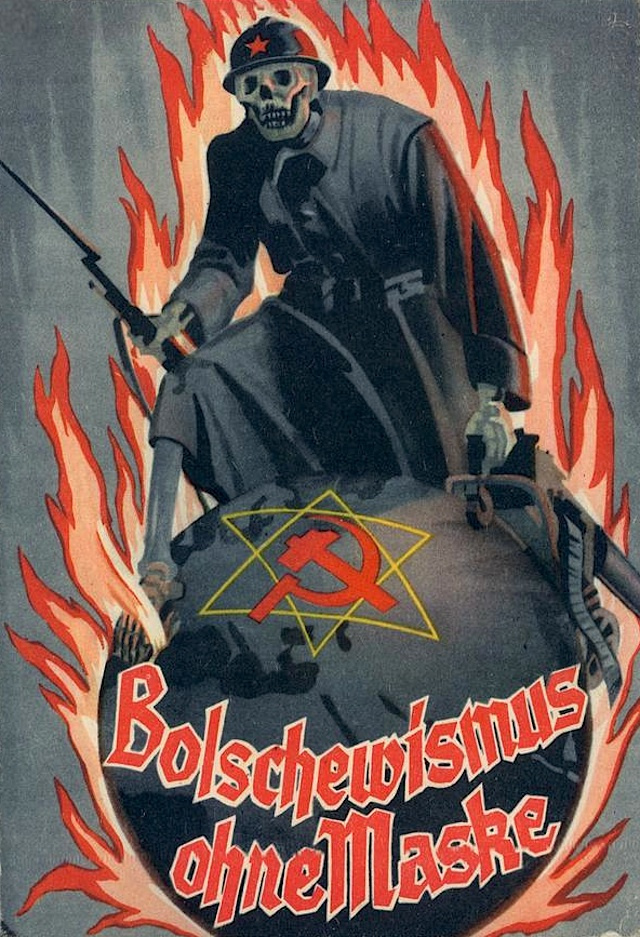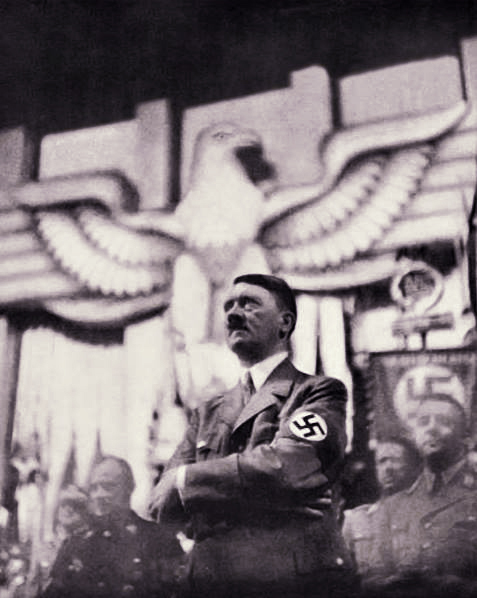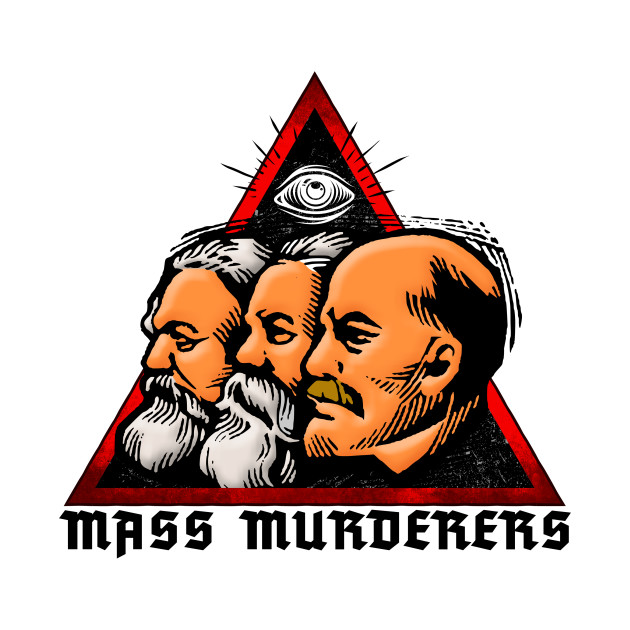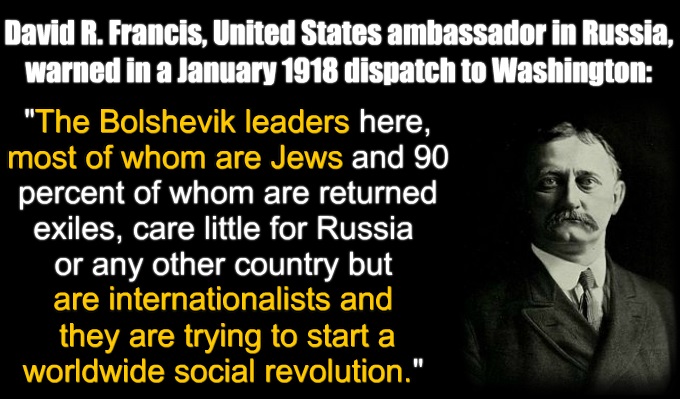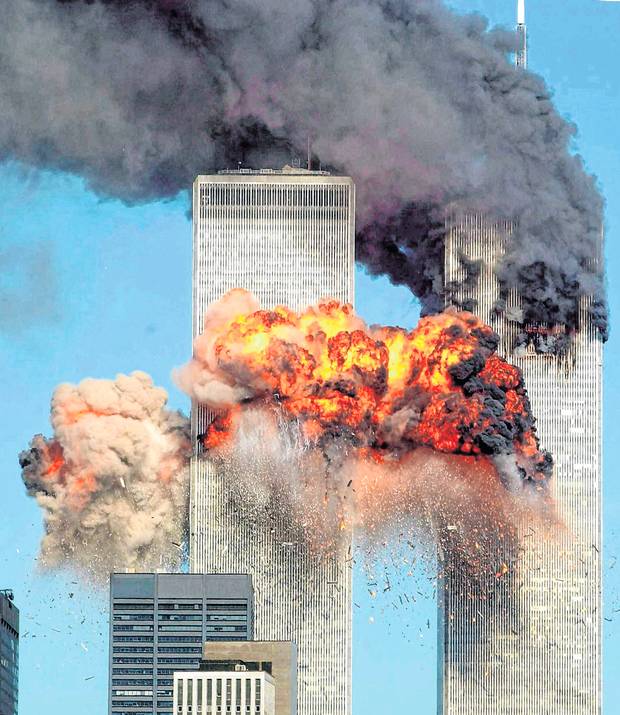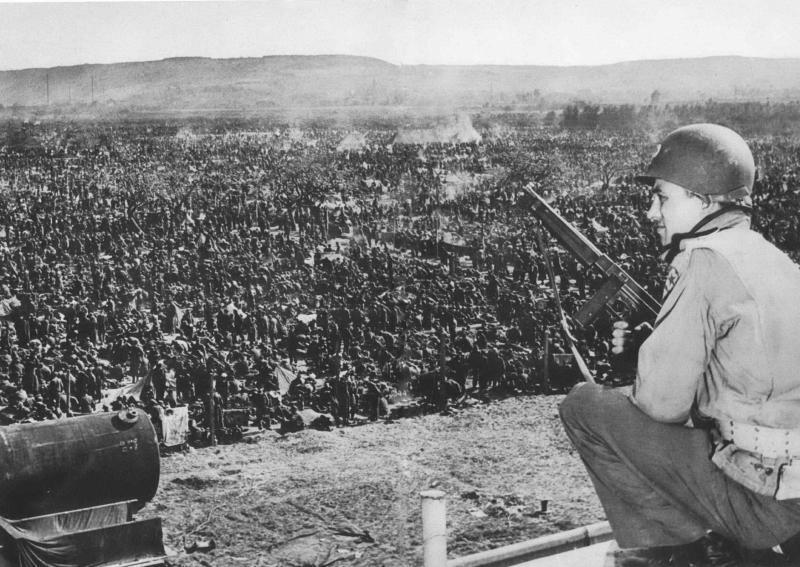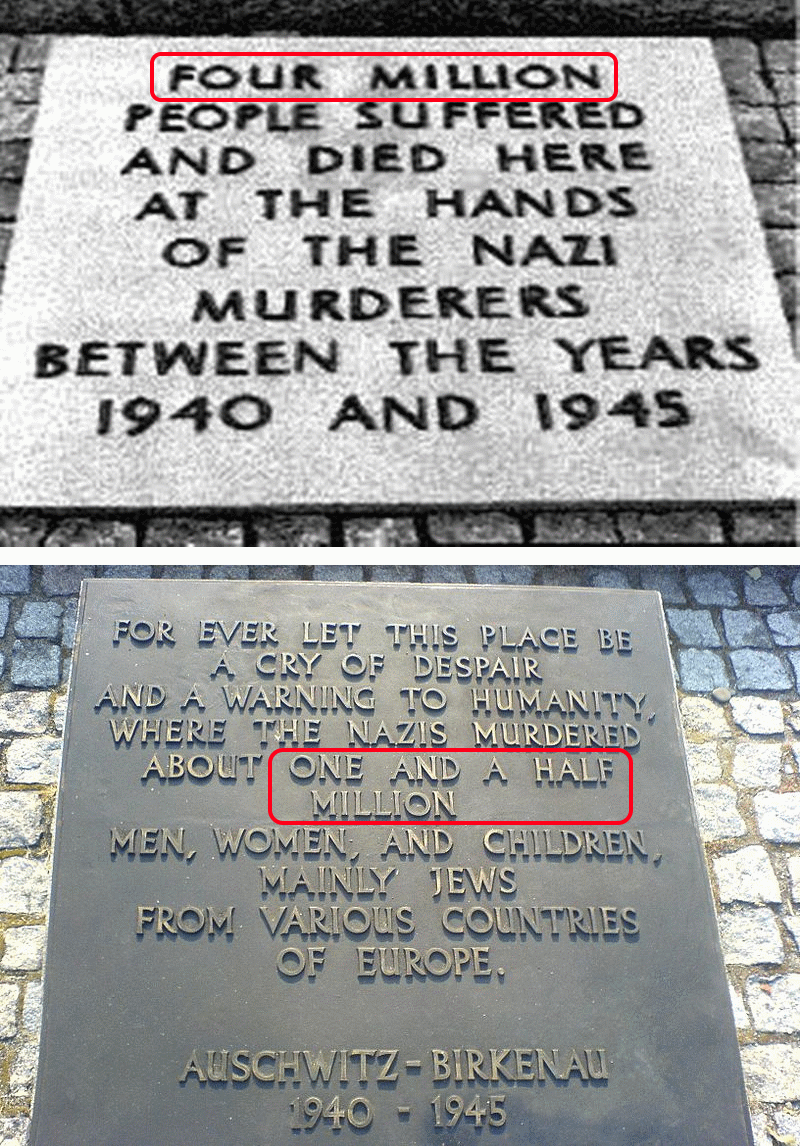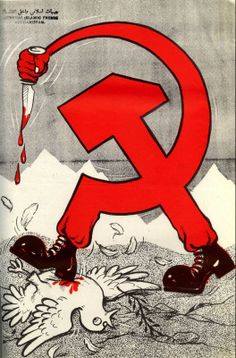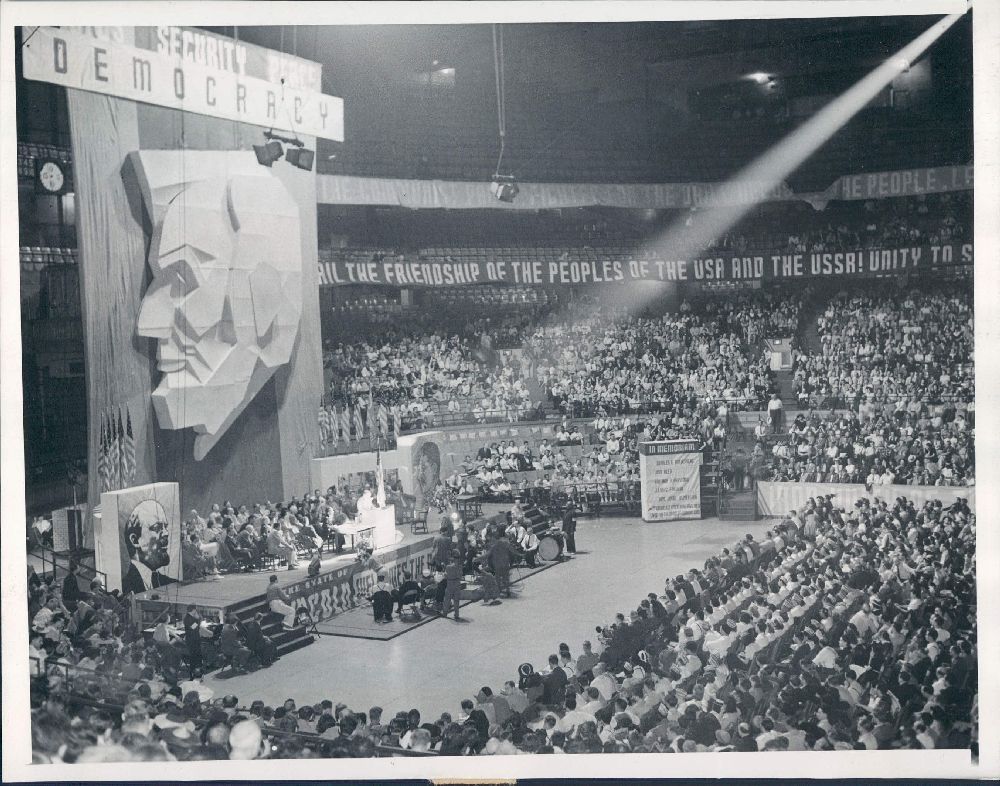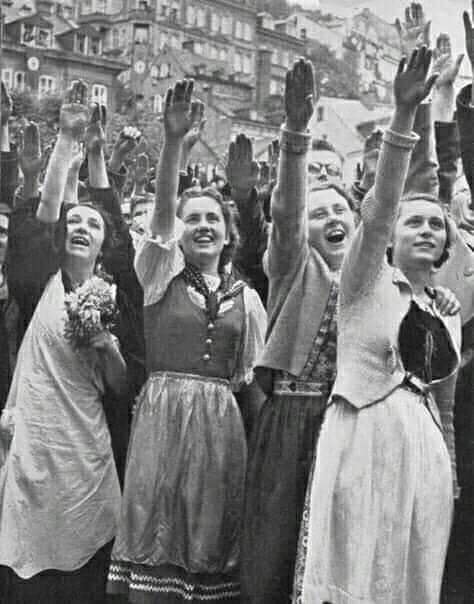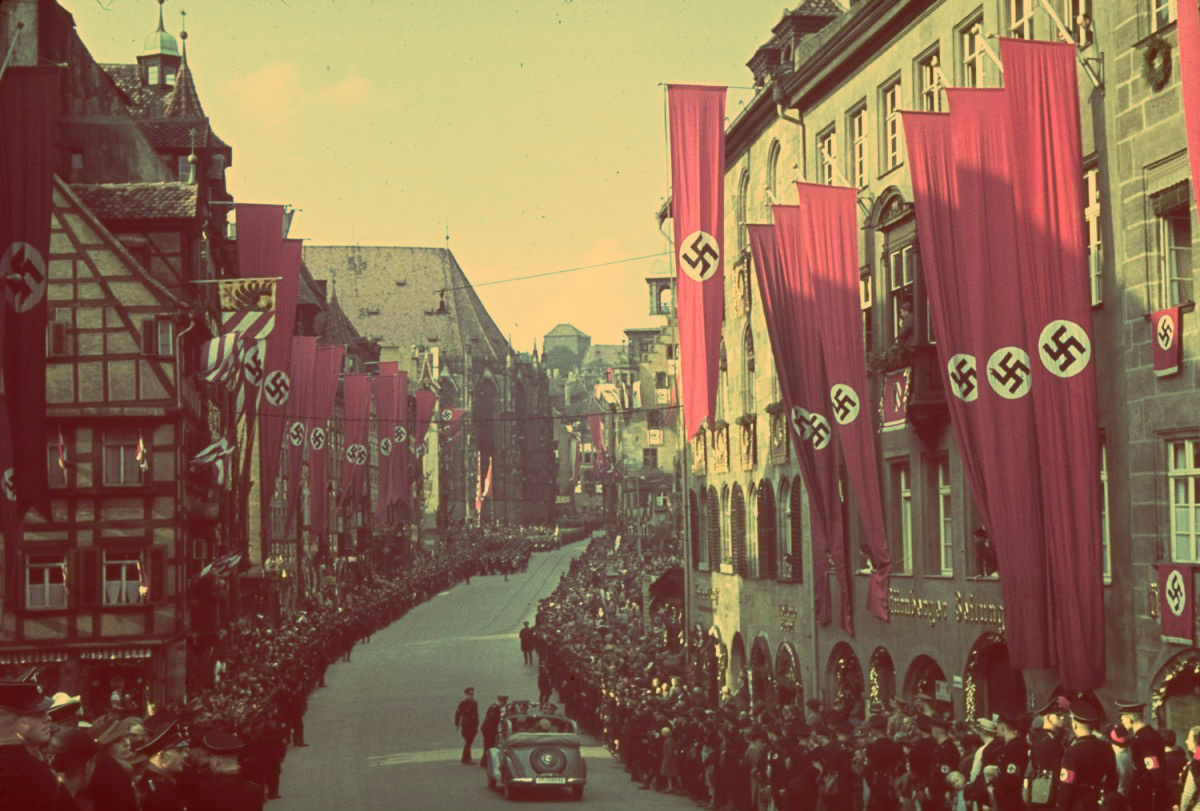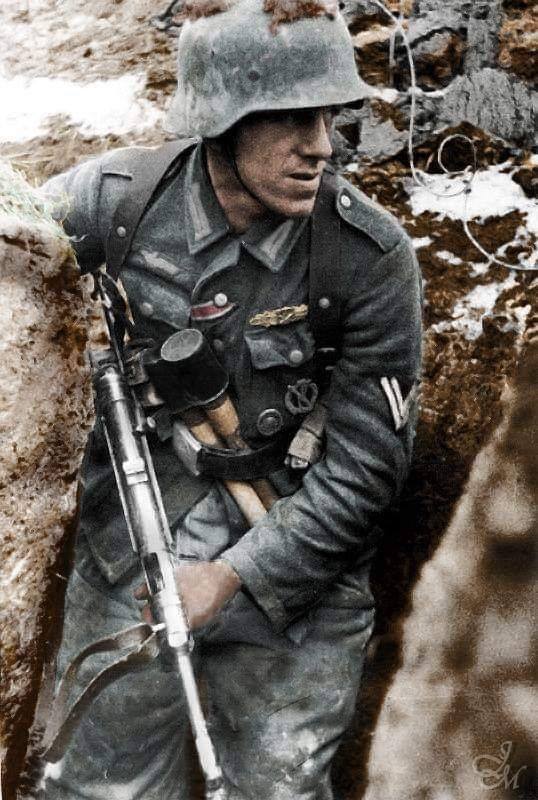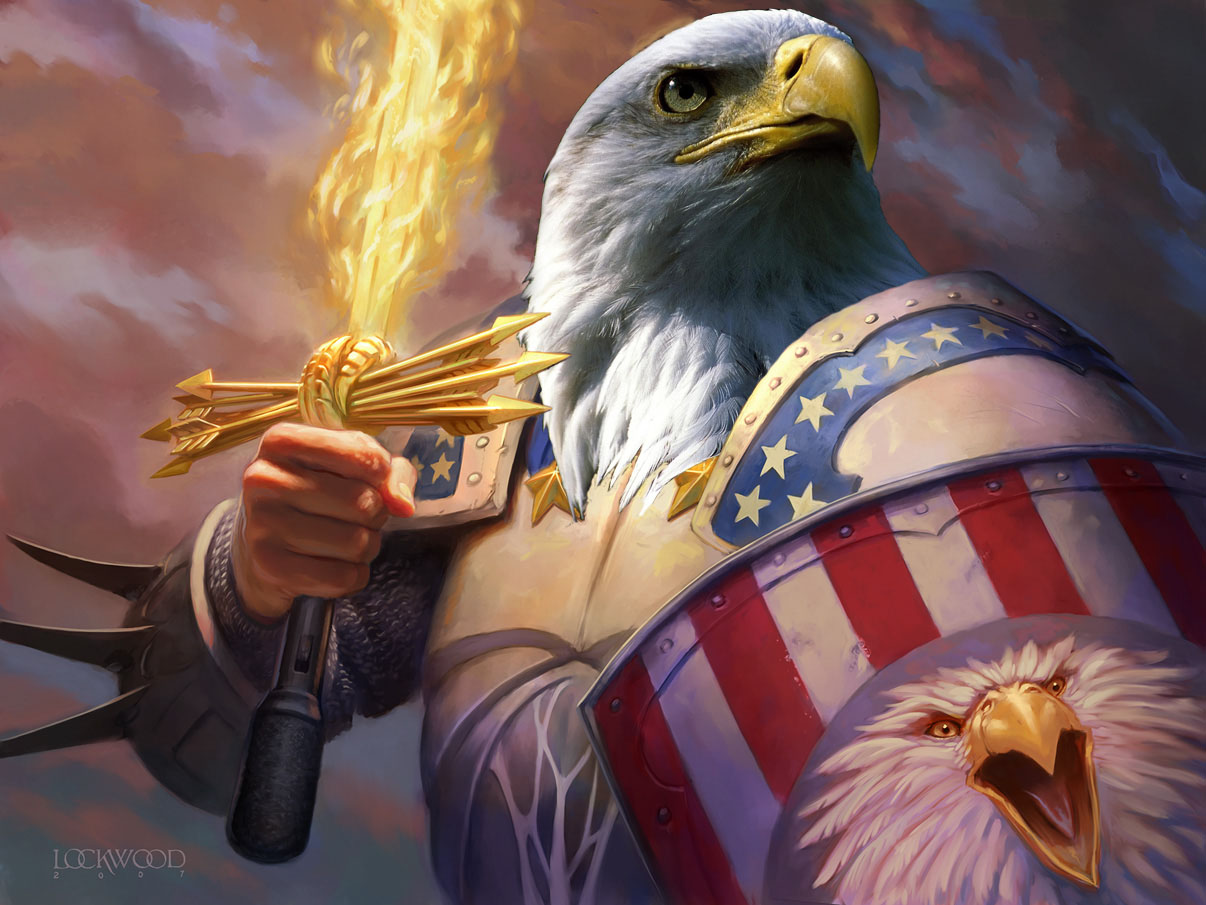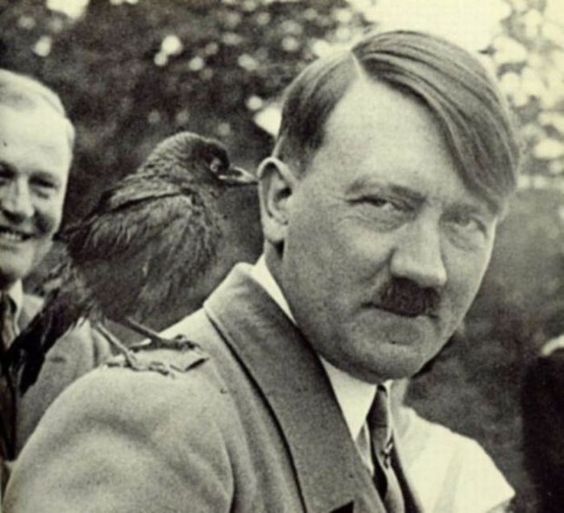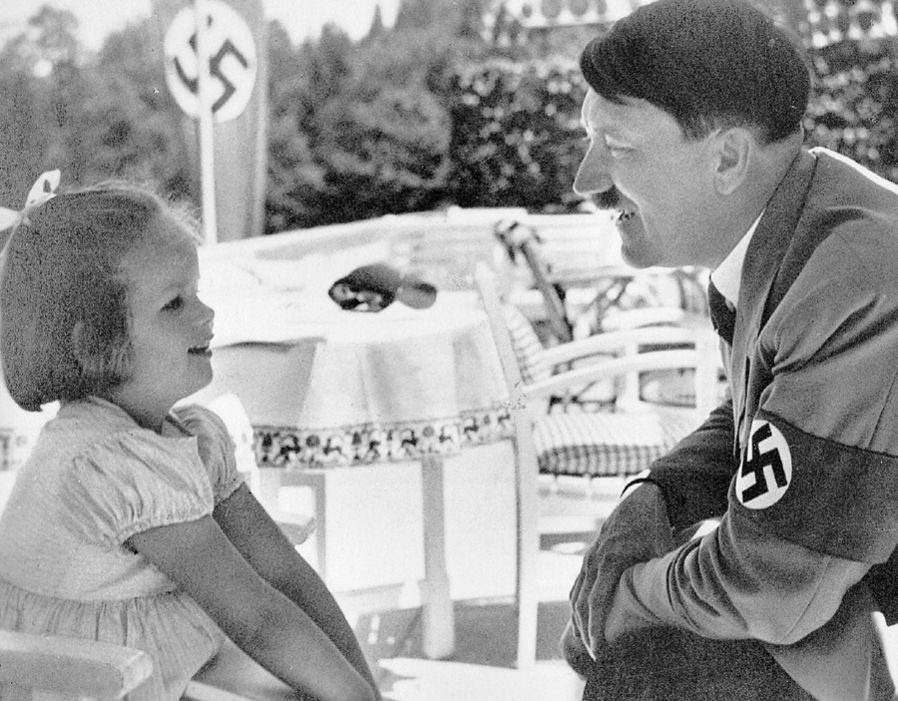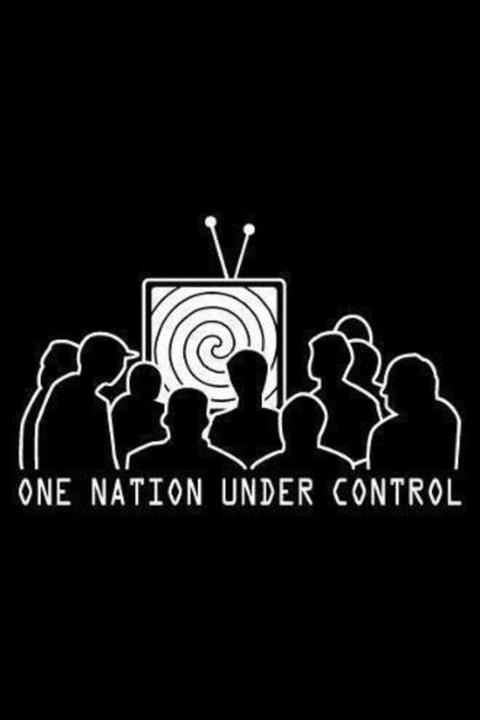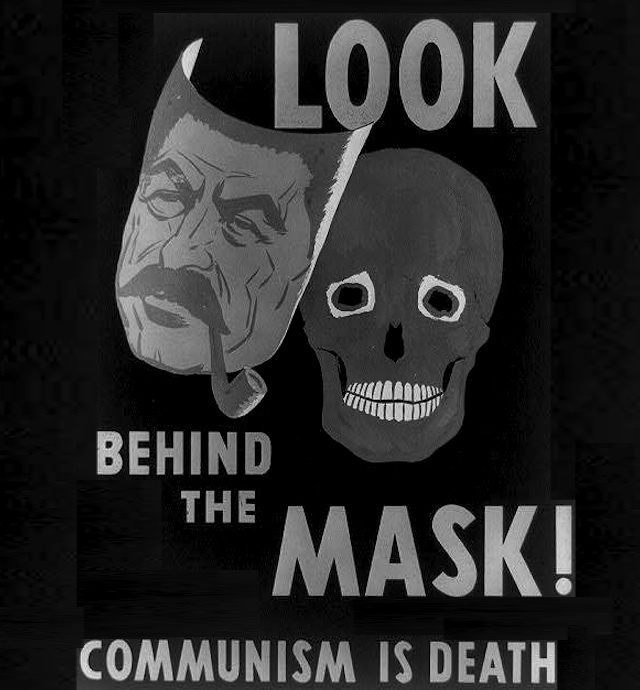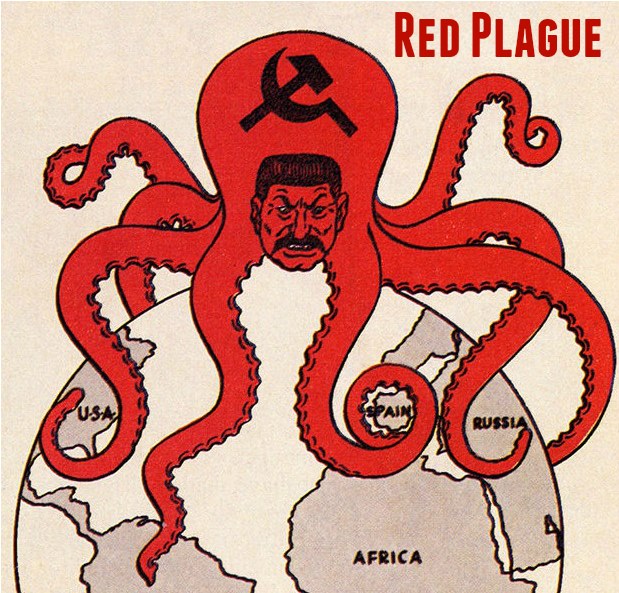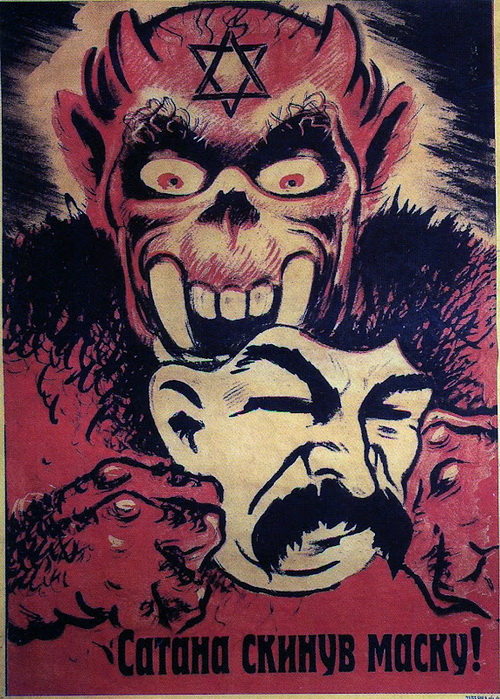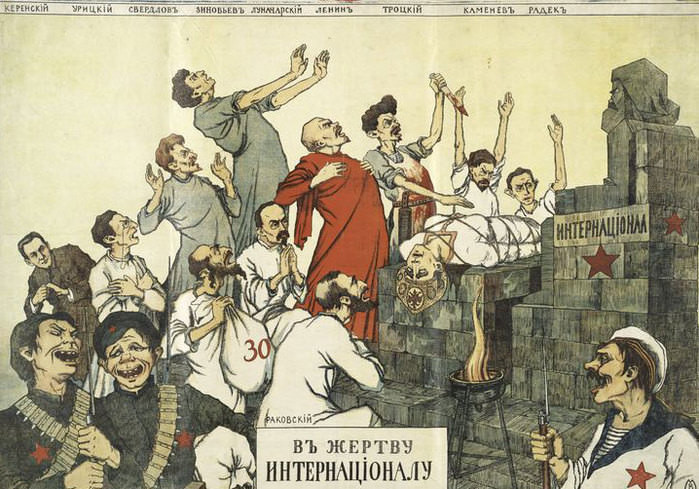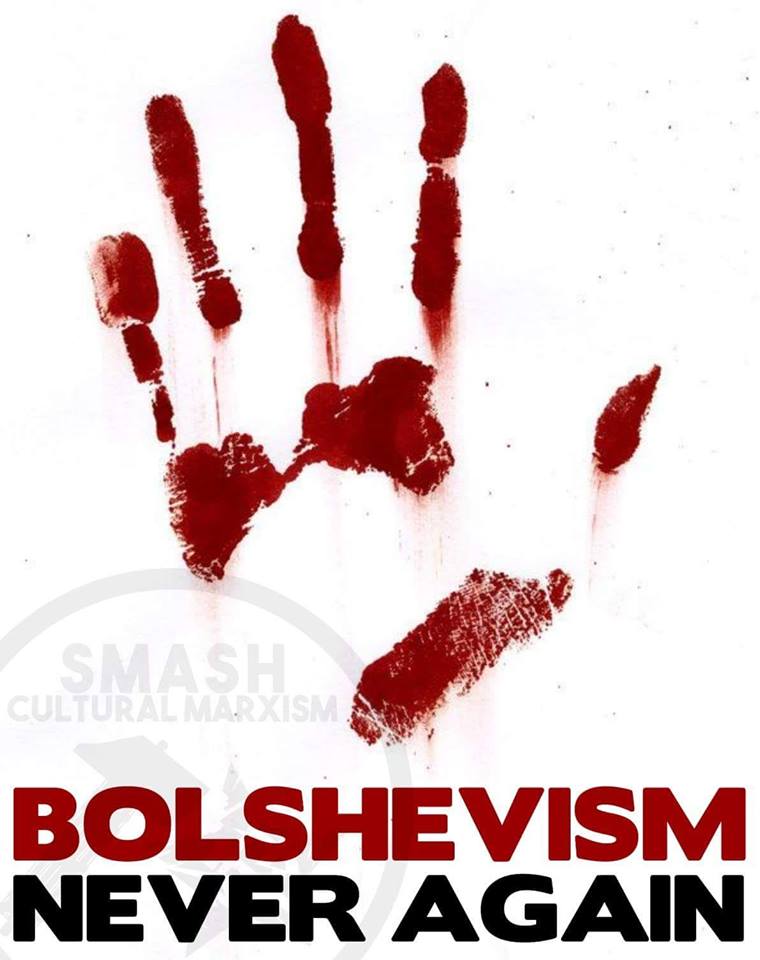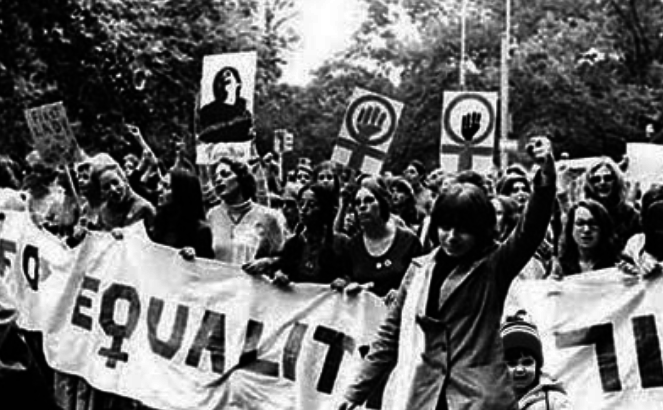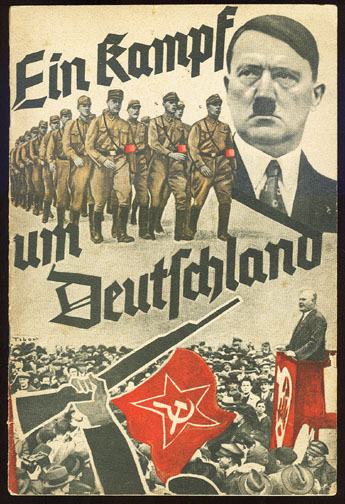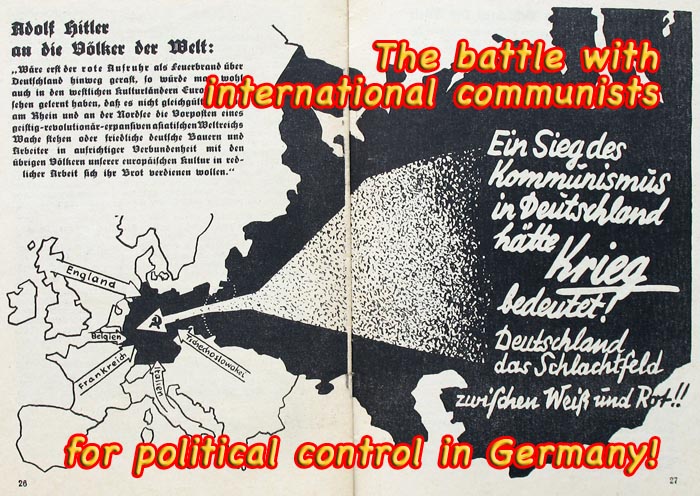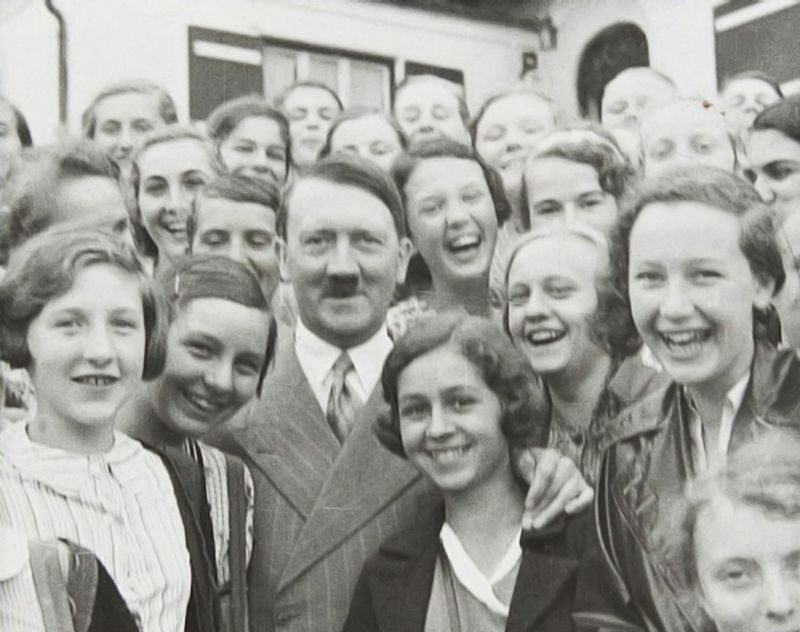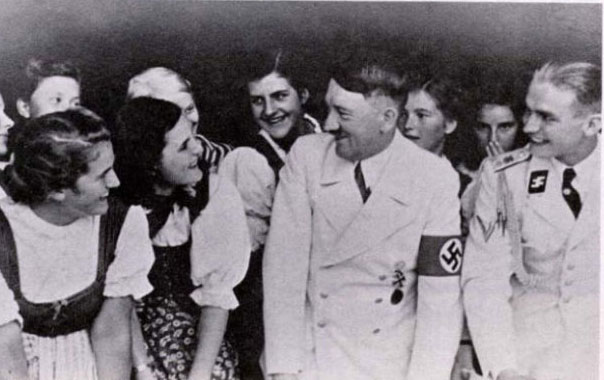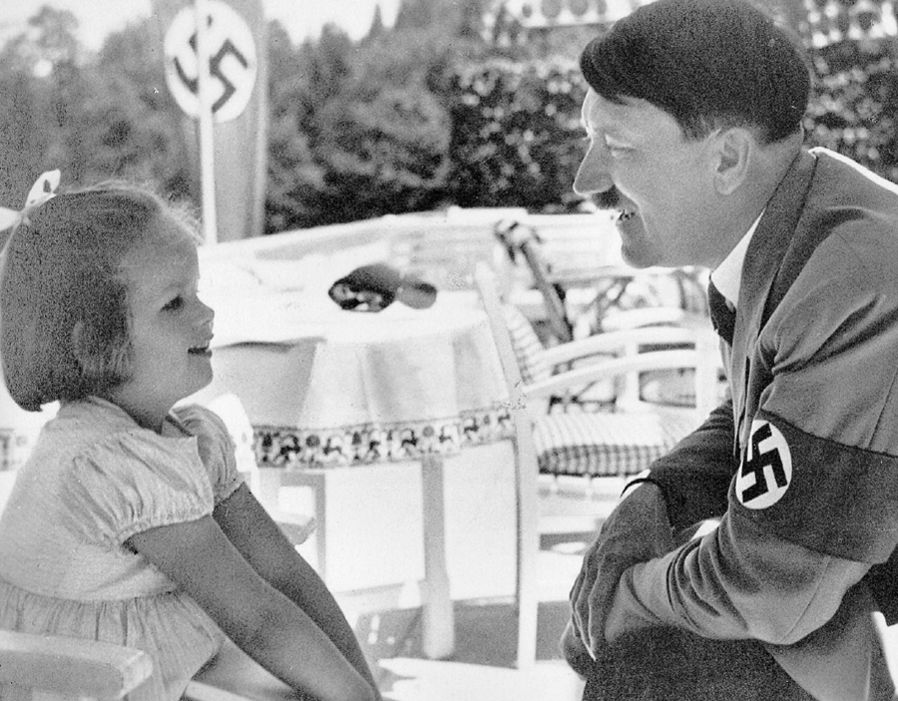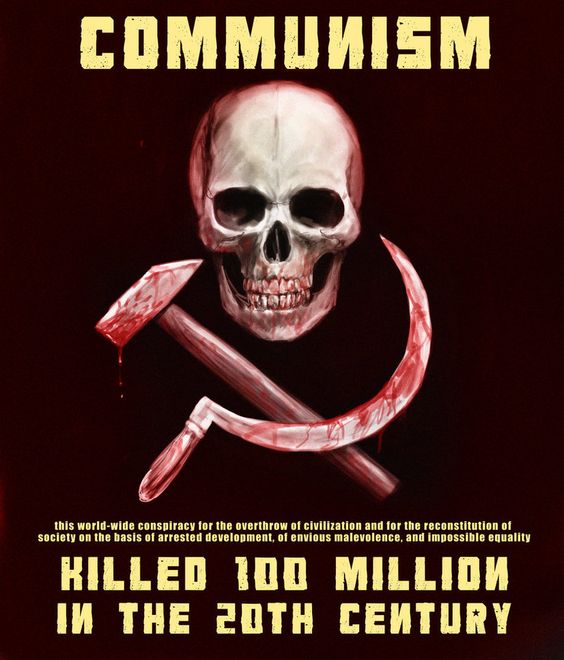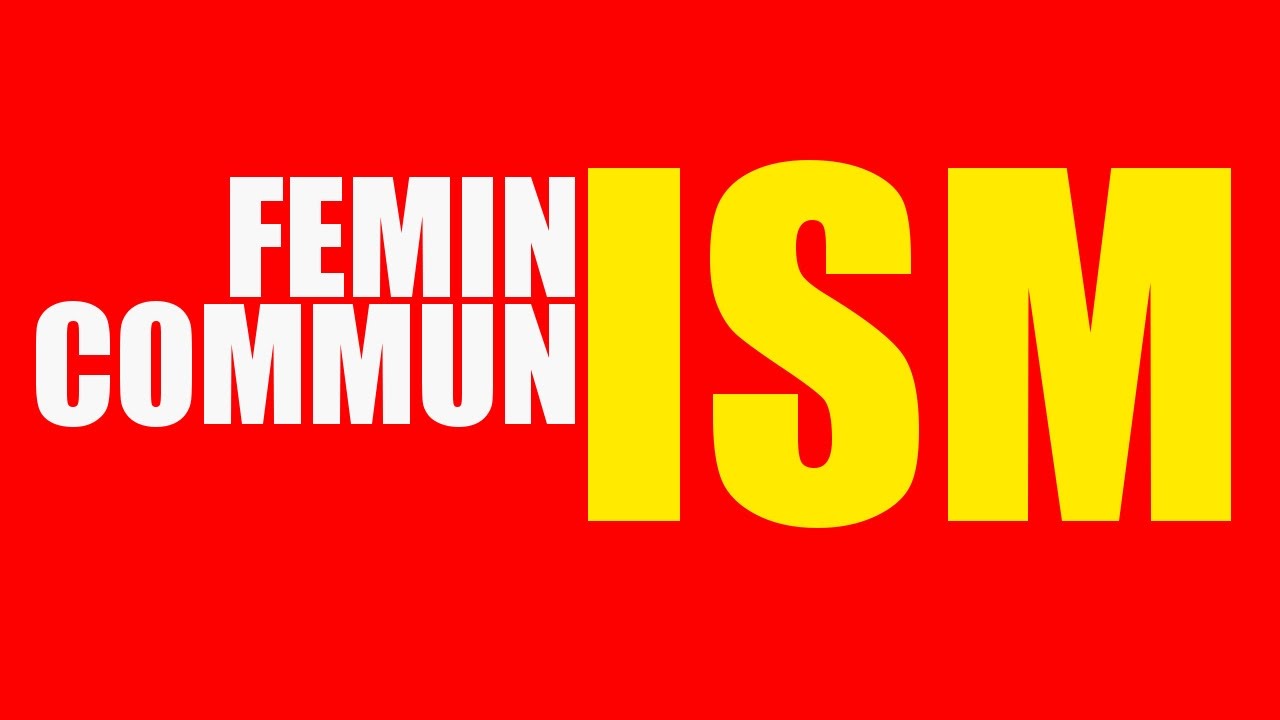“If any question why we died, Tell them, because our fathers lied.” – Rudyard Kipling, “Epitaphs of the Great War”
On June 6, 1944, Allied forces stormed the beaches of Normandy, France, to “liberate” Europe. At least, they say they were there to “liberate” the continent. That’s what our fighting men believed and had drilled into them. That’s what the public back home thought because it was the narrative the controlled press parroted. On that frightful D-Day, General Eisenhower called the Allied invasion of Europe a “Great Crusade.” The shtick he used to justify their actions was this:
“The hope and prayers of liberty-loving people everywhere march with you. In company with our brave Allies and brothers-in-arms on other Fronts, you will bring about the destruction of the German war machine, the elimination of Nazi tyranny over the oppressed peoples of Europe, and security for ourselves in a free world.”

If you were publicly educated, this is what you were taught. It’s what I was taught by history teachers, books, and Hollywood. If you never bothered to study the subject for yourself or exercise even a little independent thought, it’s doubtless what you still believe.
Here’s a fact to consider: The victors write the history books. No one listens to the defeated nation’s side. It is downplayed, ignored, rejected, and even demonized. What American cares what the British think about the American War for Independence? Who cares what Carthage thought about Roman destruction of their city? Who really gives a second thought to Persian perspectives about Alexander the Great’s conquest of their empire?
In the same way, the world has ignored – with extreme prejudice and savage ignorance – the German side of the story in the world wars almost entirely. We have failed to let go of the caricaturized versions of events given to us in wartime propaganda, but, instead, have enshrined them as “fact.” Nearly every major narrative we believe about World War II is a lie, an exaggeration, a distortion, or some form or error in judgment.
To think in a one-sided manner is, of course, unjust, unfair, and biased; but that doesn’t stop the average person from doing so. Unless you give the German side equal attention, your version of history is automatically skewed and worth practically nothing. “But, but, but Hitler. . .” Yeah, what about him? Unless you give him a fair trial and look through his eyes and understand the context of his actions (and you can’t do that by looking only at opposition sources), don’t flatter yourself that your opinions about him are fair, let alone correct or grounded in reality.
I know of no man in history, save Jesus only, about whom so many lies have been written and repeated with such frequency than Adolf Hitler. “But he’s a Nazi, right? Why should we listen to a Nazi?” Actually, the word “Nazi” was a slur created by Hitler’s political enemies in the West. Honest historians don’t use it. They use the proper term National Socialists.
“Ah, ha! See, he’s a socialist!” Wrong again. He defined the word “socialist” in an entirely different way than we use it today. He specifically said that Marxian socialism is a perversion of historical socialism. History attests to the fact that the greatest threat ever posed to world communism was not the United States and the “capitalist” nations, but Hitler’s vehemently, avowedly anti-Marxist “National Socialist” state.
Who was it that sacrificed the blood of millions of their best people to fight the Soviet Union? It wasn’t the United States or Britain or France; it was Germany. Those nations, in fact, rallied behind the Soviets and supported them. The only reason the Soviet Union was not destroyed in the 1940s was because the United States, led by Stalin-loving FDR and his conspiring clique of international gangsters and Soviet moles, sent billions of dollars’ worth of supplies, tanks, weaponry, food, etc., to Russia to bail them out when they were on the verge of defeat. Shame on us!
And that is what World War II was about – the advancement of global Marxism against all nations that opposed their one-world dictatorship. Whether they knew it or not, Americans of the so-called “Greatest Generation” fought to defend, save, and advance communism throughout the world.

Let me repeat that: American and Allied troops fought, bled, suffered, and died to advance the communist cause and a burgeoning one-world occult dictatorship. They fought for Stalin and his Judeo-Bolshevik commissars. They fought for the conspiratorial Communist Party and the ideals of Weishaupt, Marx, and Lenin. They fought for the creation of the United Nations. They fought to consolidate the power of international bankers and Marxist-minded tax-exempt foundations like Carnegie, Ford, and Rockefeller. They fought to construct the military-industrial complex and a bloated, bureaucratic state. Their ideals and honest intentions be damned; this is what they really fought and died for.
I say again, shame on us! What a disgrace the Second World War was to the Christian West, to the rule of law, to human decency, to true Freedom, and to the anti-communist aspirations of millions. Our involvement in World War II is a black stain on our nation’s noble history; a mark of infamy and shame that future generations, when properly educated, will come to despise and mourn.
A little more history is in order before people can shake off their mental shackles which bind them to false narratives and fabrications. Who started World War II? If you said, “Germany,” I say, “Go fish.” Germany did not start World War II – she didn’t even start World War I.
After Polish citizens and military began slaughtering ethnic Germans living in Polish-occupied German territory, after Poland mobilized its forces against Germany, after Polish leadership rejected repeated deals of a very generous nature by Hitler to settle the dispute over land that rightfully belonged to Germany but had been severed by the League of Nation meddlers after World War I, and after the Poles published a map showing their border extending west of Berlin, Hitler ordered a retaliatory attack on Poland.
On September 1, 1939, in a speech to the Reichstag, Hitler famously discussed Poland’s unwillingness to compromise with Germany, the West’s facilitation of conflict, and Polish aggression. Since you have likely never read the speech, I quote generously from it here. Knowing why Hitler attacked Poland is integral to understanding why I say it is a baldfaced lie that the Allies “liberated” Europe from the “evil” National Socialists. In his speech, Hitler explained:
“For months we have been suffering under the torture of a problem which the Versailles Diktat created – a problem which has deteriorated until it becomes intolerable for us. Danzig was and is a German city. The Corridor was and is German. Both these territories owe their cultural development exclusively to the German people. Danzig was separated from us, the Corridor was annexed by Poland. As in other German territories of the East, all German minorities living there have been ill-treated in the most distressing manner. More than 1,000,000 people of German blood had in the years 1919-1920 to leave their homeland.
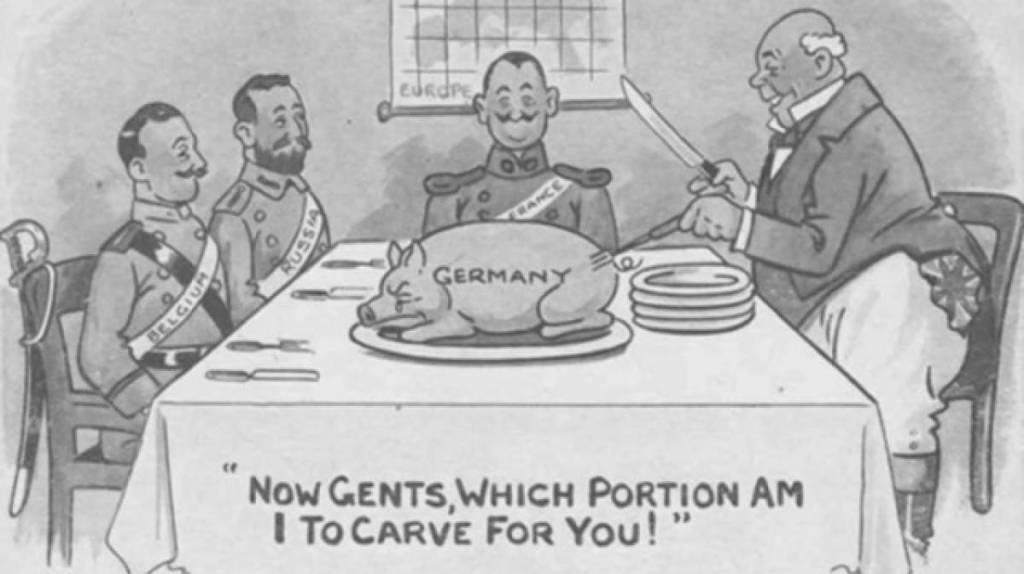
“As always, I attempted to bring about, by the peaceful method of making proposals for revision, an alteration of this intolerable position. It is a lie when the outside world says that we only tried to carry through our revisions by pressure. Fifteen years before the National Socialist Party came to power there was the opportunity of carrying out these revisions by peaceful settlements and understanding. On my own initiative I have, not once but several times, made proposals for the revision of intolerable conditions. All these proposals, as you know, have been rejected – proposals for limitation of armaments and even, if necessary, disarmament, proposals for limitation of warmaking, proposals for the elimination of certain methods of modern warfare. You know the proposals that I have made to fulfill the necessity of restoring German sovereignty over German territories. You know the endless attempts I made for a peaceful clarification and understanding of the problem of Austria, and later of the problem of the Sudetenland, Bohemia, and Moravia. It was all in vain.
“It is impossible to demand that an impossible position should be cleared up by peaceful revision and at the same time constantly reject peaceful revision. It is also impossible to say that he who undertakes to carry out these revisions for himself transgresses a law, since the Versailles Diktat is not law to us. A signature was forced out of us with pistols at our head and with the threat of hunger for millions of people. And then this document, with our signature, obtained by force, was proclaimed as a solemn law.
“In the same way, I have also tried to solve the problem of Danzig, the Corridor, etc., by proposing a peaceful discussion. That the problems had to be solved was clear. It is quite understandable to us that the time when the problem was to be solved had little interest for the Western Powers. But that time is not a matter of indifference to us. Moreover, it was not and could not be a matter of indifference to those who suffer most.
“In my talks with Polish statesmen I discussed the ideas which you recognize from my last speech to the Reichstag. No one could say that this was in any way an inadmissible procedure on undue pressure. I then naturally formulated at last the German proposals, and I must once more repeat that there is nothing more modest or loyal than these proposals. I should like to say this to the world. I alone was in the position to make such proposal, for I know very well that in doing so I brought myself into opposition to millions of Germans. These proposals have been refused. Not only were they answered first with mobilization, but with increased terror and pressure against our German compatriots and with a slow strangling of the Free City of Danzig – economically, politically, and in recent weeks by military and transport means.
“Poland has directed its attacks against the Free City of Danzig. Moreover, Poland was not prepared to settle the Corridor question in a reasonable way which would be equitable to both parties, and she did not think of keeping her obligations to minorities.
“I must here state something definitely; German has kept these obligations; the minorities who live in Germany are not persecuted. No Frenchman can stand up and say that any Frenchman living in the Saar territory is oppressed, tortured, or deprived of his rights. Nobody can say this.
“For four months I have calmly watched developments, although I never ceased to give warnings. In the last few days I have increased these warnings. I informed the Polish Ambassador three weeks ago that if Poland continued to send to Danzig notes in the form of ultimata, and if on the Polish side an end was not put to Customs measures destined to ruin Danzig’s trade, then the Reich could not remain inactive. I left no doubt that people who wanted to compare the Germany of to-day with the former Germany would be deceiving themselves.
“An attempt was made to justify the oppression of the Germans by claiming that they had committed acts of provocation. I do not know in what these provocations on the part of women and children consist, if they themselves are maltreated, in some cases killed. One thing I do know – that no great Power can with honour long stand by passively and watch such events.
“I made one more final effort to accept a proposal for mediation on the part of the British Government. They proposed, not that they themselves should carry on the negotiations, but rather that Poland and Germany should come into direct contact and once more pursue negotiations. . . .
“These proposals for mediation have failed because in the meanwhile there, first of all, came as an answer the sudden Polish general mobilization, followed by more Polish atrocities. These were again repeated last night. Recently in one night there were as many as twenty-one frontier incidents: last night there were fourteen, of which three were quite serious. I have, therefore, resolved to speak to Poland in the same language that Poland for months past has used toward us. This attitude on the part of the Reich will not change.
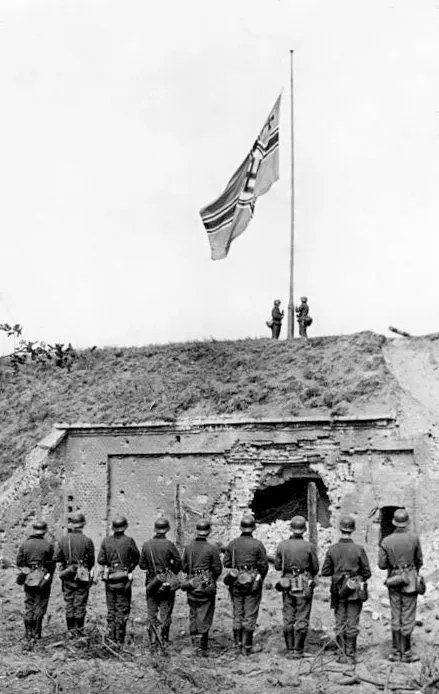
“The other European States understand in part our attitude. I should like here above all to thank Italy, which throughout has supported us, but you will understand that for the carrying on of this struggle we do not intend to appeal to foreign help. We will carry out this task ourselves. The neutral States have assured us of their neutrality, just as we had already guaranteed it to them.
“When statesmen in the West declare that this affects their interests, I can only regret such a declaration. It cannot for a moment make me hesitate to fulfill my duty. What more is wanted? I have solemnly assured them, and I repeat it, that we ask nothing of those Western States and never will ask anything. I have declared that the frontier between France and Germany is a final one. I have repeatedly offered friendship and, if necessary, the closest co-operation to Britain, but this cannot be offered from one side only. It must find response on the other side. Germany has no interests in the West, and our western wall is for all time the frontier of the Reich on the west. Moreover, we have no aims of any kind there for the future. With this assurance we are in solemn earnest, and as long as others do not violate their neutrality we will likewise take every care to respect it. . . .
“This night for the first time Polish regular soldiers fired on our territory. Since 5.45 A.M. we have been returning the fire, and from now on bombs will be met by bombs. Whoever fight with poison gas will be fought with poison gas. Whoever departs from the rules of humane warfare can only expect that we shall do the same. I will continue this struggle, no matter against whom, until the safety of the Reich and its rights are secured.”
That is the bulk of Hitler’s speech explaining Germany’s entrance into the conflict brewing in Poland against German minorities and the German port city Danzig. The League of Nations was obligated to protect Danzig and keep it an open and free city, but it did nothing to stop Polish aggression and economic strangulation. Britian and France did nothing as Poland mobilized its militaries – considered an act of war at the time. Instead, they secretly assured Poland of their support should hostilities break out and egged on a conflict. They also secretly asked Stalin to join in on an attack of Germany if war between Poland and Germany began, which Stalin strategically rejected in favor of backing Germany to ensure a larger European war that Russia could later enter victoriously when the parties had exhausted themselves. I covered this, the run up to Operation Barbarossa, and the true initiators of the war in my articles “Victory Day – For Whom?” and “The Greatest Battle in the History of the World.”
Hitler struggled for years to cooperate with European leaders. He offered peace proposals again and again through diplomatic channels, speeches, and op-eds. He pleaded for peace. As a war veteran who had fought bravely and suffered injuries, he knew what war required, he knew war was hell, and he didn’t want to put his beloved nation through another terrible conflict.
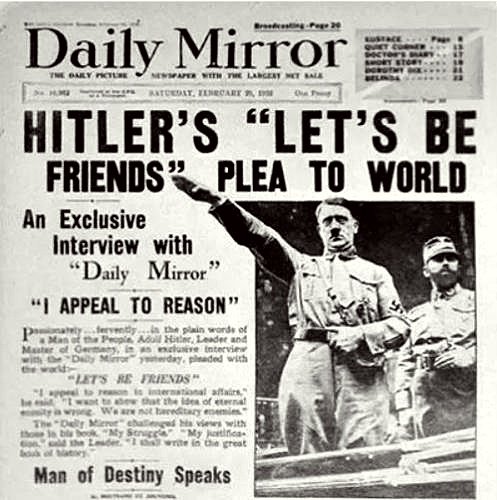
In a 1935 interview with Hitler, an interviewer, Ward Price, told him of a politician who had privately confided his view that Hitler was merely pretending to desire peace until his military was strong enough to attack. He asked Hitler’s response. Hitler answered:
“That politician has never led a people. Otherwise how could he believe that one can talk about peace for a decade and then suddenly, with the same people, simply start a war without further ado? When I talk about peace, I am expressing none other than the innermost desire of the German Volk. I know the horrors of war: no gains can compensate for the losses it brings. The disastrous consequences of widespread European butchery in the future would be even worse. I believe that the madness of Communism would be the sole victor. But I have not fought this for fifteen years to elevate it finally to the throne by way of a detour. What I want is the well-being of my Volk! I have seen that war is not the highest form of bliss, but the contrary: I have witnessed only the deepest suffering. Hence I can quite frankly state two of my beliefs:
“1. Germany will never break the peace of its own accord, and
“2. He who would lay hands upon us will encounter thorns and barbs! For we love liberty just as we love peace.
“And if, without being compelled to do so, I submit to France on behalf of the entire German Volk the pledge that we will place no further territorial demands upon it and thus of our own accord eliminate any grounds for revenge, at the same time I pledge an equally sacred vow that no measure of need, pressure or violence will ever move us to relinquish our honor or our equality of rights.
“I hold that this must be said, for treaties only make sense when concluded by honor-loving peoples and honor-conscious governments. Germany wishes to establish honest relations with the peoples of neighboring countries. We have done this in the East, and I believe that not only Berlin but Warsaw as well will rejoice in the decontamination of the atmosphere brought about through our joint efforts. I hold to my conviction that, once this path of mutual understanding and consideration has been taken, more will come of it in the end than through ever so extensive pacts inherently lacking in clarity.
“In any case, I will reflect a thousand times over before I allow the German Volk to become entangled in agreements whose consequences are not readily evident. If, on our own account, we do not intend to wage war, we are much less willing to do so for interests which do not concern Germany and are alien to it.
“I may add that we have more than once stated our willingness to conclude nonaggression pacts with the states neighboring our own!” (Adolf Hitler Collection of Speeches 1933-1945, 234-235).
Hitler stated numerous times that only a madman, or one who had never witnessed war firsthand, could desire another European war – especially in the technology age with mass casualty weapons. Hitler didn’t want to sacrifice the best blood of his nation; he wanted to build up his people. Everyone agrees he was an ultra-nationalist, yet, bizarrely, they simultaneously believe he didn’t care at all about his people. Both can’t be true. Either he loved Germany and didn’t desire war, which is evident from his speeches, declarations, and actions throughout the whole of his life, or he was a warmonger who didn’t care. Judge for yourself.
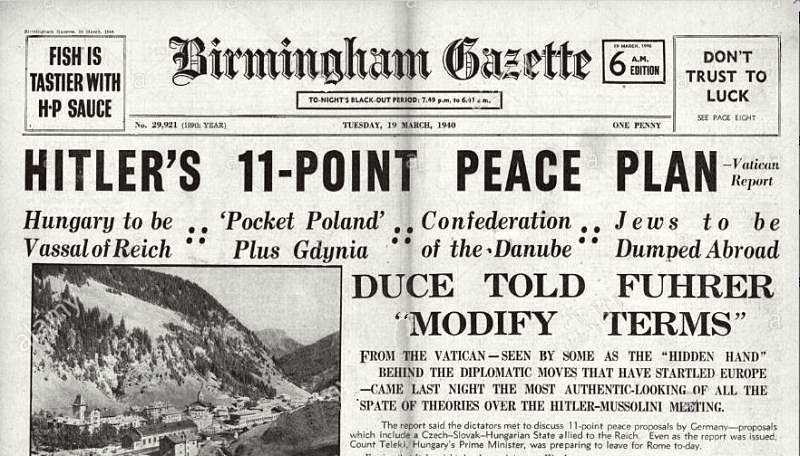
Read the book What the World Rejected: Hitler’s Peace Offers 1933-1940 by historian Dr. Friedrich Stieve to learn the sad truth of the Allies’ perpetual striving for war against a nation that consistently wanted, pled for, and offered peace. I quote an excerpt from the book:
“Germany’s enemies maintain today that Adolf Hitler is the greatest disturber of peace known to history, that he threatens every nation with sudden attack and oppression, that he has created a terrible war machine in order to cause trouble and devastation all around him.
“At the same time they intentionally conceal an all-important fact: they themselves drove the Leader of the German people finally to draw the sword. They themselves compelled him to seek to obtain at last by the use of force that which he had been striving to gain by persuasion from the beginning: the security of his country.
“They did this not only by declaring war on him on September 3, 1939, but also by blocking step by step for seven years the path to any peaceful discussion.
“The attempts repeatedly made by Adolf Hitler to induce the governments of other states to collaborate with him in a reconstruction of Europe represent an ever-recurring pattern in his conduct since the commencement of his labors for the German Reich.
“But these attempts were wrecked every time by reason of the fact that nowhere was there any willingness to give them due consideration, because the evil spirit of the Great War still prevailed everywhere, because in London and Paris and in the capitals of the Western Powers’ vassal states there was only one fixed intention: to perpetuate the power of Versailles.
“A rapid glance at the most important events will furnish incontrovertible proof for this statement.
“When Adolf Hitler came to the fore, Germany was as gagged and as helpless as the victors of 1918 wanted her to be. Completely disarmed, with an army of only 100,000 men intended solely for police duties within the country, she found herself within a tightly closed ring of neighbors all armed to the teeth and leagued together.
“To the old enemies in the West, Britain, Belgium, and France, new ones were artificially created and added in the East and the South: above all Poland and Czechoslovakia.
“A quarter of the population of Germany was forcibly torn away from their mother country and handed over to foreign powers. The Reich, mutilated on all sides and robbed of every means of defense, at any moment could become the helpless victim of some rapacious neighbor.
“Then it was that Adolf Hitler for the first time made his appeal to the common sense of the other powers.
“On May 17, 1933, a few months after his appointment to the office of Reichskanzler, he delivered a speech in the German Reichstag, from which we extract the following passages:
““Germany will be perfectly ready to disband her entire military establishment and destroy the small amount of arms remaining to her, if the neighboring countries will do the same thing with equal thoroughness.
“. . . Germany is entirely ready to renounce aggressive weapons of every sort if the armed nations, on their part, will destroy their aggressive weapons within a specified period, and if their use is forbidden by an international convention .
. . . Germany is at all times prepared to renounce aggressive weapons if the rest of the world does the same. Germany is prepared to agree to any solemn pact of non-aggression because she does not think of attacking anybody but only of acquiring security.”
“No answer was received. Without paying any heed the others continued to fill their arsenals with weapons, to pile up their stores of explosives, to increase the numbers of their troops.
“At the same time the League of Nations, the instrument of the victorious powers, declared that Germany must first pass through a period of “probation” before it would be possible to discuss with her the question of the disarmament of the other countries.
“On October 14, 1933, Hitler broke away from this League of Nations with which it was impossible to come to any agreement” (Friedrich Stieve, What the World Rejected, 2-5).
Time and time again, year after year, Britain, France, Soviet Russia, Poland, and other surrounding nations, rejected Hitler’s attempts at peace, slapped his outstretched hand of friendship away, and armed for war while Germany pled for a cessation of animosity. The historical record is too sure on this point for any honest and informed person to deny it.

Some honest people may be ignorant of these facts and may not know that Hitler wanted peace, but their honesty will lead them to accept the truth when it is presented to them. Dishonest people, however, are the ones who reject the evidence in favor of the Establishment’s narrative about Hitler that has been beat into them since infancy. Think of it, this is the corrupt political Establishment’s narrative, yet you believe it! What other ludicrous Establishment lies do you believe, WMDs in Iraq, back and to the left, Russia-Trump collusion, Epstein killed himself, Biden beat Trump in 2020?
At some point, you have to grow up and throw off the indoctrination. Hitler was not the bad guy. Germany was not the villain. A good starting point is for you to read Benton Bradburry’s excellent work The Myth of German Villainy. Just as in World War I, Germany in World War II was scapegoated by the true war-starters and world conquerors – the Allies.
Back to Poland and Germany. The fantastic British researcher and author Nick Kollerstrom, in his book How Britain Initiated Both World Wars, wrote of the Polish situation thus:
“After the Treaty of Versailles, Germany was kind of chopped up, the peoples who felt they were German had been separated into different nations, like a jellyfish chopped up into different bits, and they were wanting to come together again, the different bits were wanting to reconnect. At Nuremberg it was declared, that these were wars of aggression, when Hitler went into different countries -they said he invaded Austria, he invaded Czechoslovakia and he invaded Poland. But, I want to try and put a different point of view here: these were Germanic people who were German and wanted to re-join Germany. When the German troops went into Austria, they were greeted with flowers being thrown in their path, and there was no military action, there was rejoicing, and I believe the same happened when they went into the Sudetenland, which was a part of Czechoslovakia, that they were greeted by people who wanted to be part of Germany. Germany had been immensely successful in the 1930s, with its prodigious economic recovery, and that became a motive for peoples wanting to be a part of Germany.
“There were divisions around Danzig between people who felt they were German, in land that had been given to Poland. This became a terrible provocation which soon led to the war. There was a policy enunciated at Chatham House, which one could argue was being pursued by Germany. After WW1, Britain and America had been talking about the right of determination of small nations, self-determination, that was a kind of mantra, and the Americans especially liked it as their formula for dismantling the British Empire -the right of self-determination of small nations. People were trying to think of, what had been the point of the First World War? Ah yes, it was Belgium’s right of self-determination. Could that formula also be applied to, say, Austria, or to German speaking people in different countries? Let’s hear what was said by Lord Lothian, who addressed Chatham House in 1927:
““If the principle of self-determination were applied on behalf of Germany, in the way that it was applied against them, it would mean the re-entry of Austria into Germany, the union of Sudetenland, Danzig, and of Memel in and at least certain adjustments of Poland and Silesia in the Corridor.”
“The key question here is, did Germans, people who feel they are German, have a right to gather together into one country? This was what Hitler called the ‘Reich,’ the idea of that togetherness, that would be larger than what was originally defined as Germany in 1871. Did they have that right – or, would that threaten other European countries? That is here the question. Let’s focus especially on what happened to Poland in 1939. Land had been ripped away from Germany by the Treaty of Versailles at the end of the war, and given to Poland. What was defined as Poland had at most 50% of native Polish people in it, and they were trying to assert a national identity, very much by getting rid of people who they felt were outsiders, and this was having catastrophic consequences.
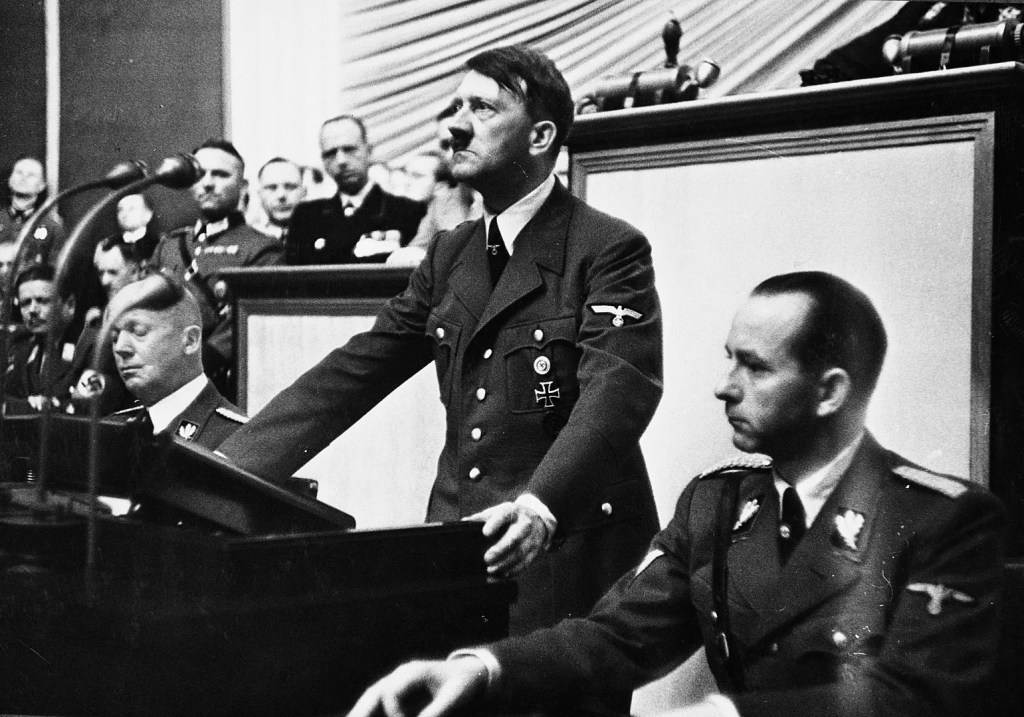
“The historian A.J.P. Taylor said, “Danzig was the most justified of German grievances – a city of exclusively German population, which wished to return to the Reich, and Hitler himself restrained only with difficulty”. Germany asked: Can we build a railway and road connecting Germany with Danzig? Poland did not even reply.
“Britons were concerned about German expansion, they said, you’re grabbing this and you’re grabbing that, and so the fatal war-guarantee was given to Poland. That led to even more truculent behavior by Poland, once Chamberlain had given it his unconditional war-guarantee.
“In A.J.P. Taylor’s view, there had been no intention to invade Poland – I think that’s important. Everyone nowadays believes in Hitler’s bad faith, but he said, with the Czechoslovak deal, that was his last demand for land. He didn’t intend to go into Poland. I want to suggest that – or rather, A.J.P. Taylor is saying that – he wanted Germany and Poland to remain on good terms. . . .
“Late in 1938 Hitler made this offer to Poland, – it would have guaranteed its boundaries and protected it against Soviet Russia. It had the German free state of Danzig given a road and rail connection, as it desired to be a part of Germany. And then – this is a bit more controversial – a plebiscite would be given to West Prussia, as to who they wanted to belong to. Poland is guaranteed an open seaport, and they would then continue with the non-aggression pact. Poland didn’t respond to that deal at all – very truculent behavior . . . a hundred thousand Germans had to flee to the woods; or be under shelling from Polish troops from over the borders; “more than seventy thousand refugees had to be housed in German refugee camps. The aggression against Germans increased on a daily basis.”
“It may be hard to believe this, but Poland was wanting war with Germany. It published a map of Europe showing a whole lot of Germany carved out and having become Poland. This became far worse when in March, 1939, Chamberlain gave this unconditional war-guarantee to Poland. It had had a nonaggression pact with Germany, and that was rejected, and instead there was a war-guarantee: which said that in any war with Germany, even if Poland starts it, Britain would come in. That was just what Poland wanted because it did want war.
“Poland intensified its persecution of the German minority. Speaking German in public was prosecuted – this is land that had been German, up until 1918. German-associated newspapers were suppressed, and so forth. The Germans felt this nullified the agreement which they had made at Munich in September 1938 for Britain and Germany to work closely together to maintain the peace.”
It was in this tense situation that the atrocities started. After Poland began inhumanely slaughtering, raping, and forcing German minorities from their homes, Hitler made the decision to attack. On September 1, 1939, when all attempts at peace had failed and delay would mean more German civilian deaths, German troops entered what used to be German territory. This only intensified the massacres against Germans.
Though the study was never finished due to the war, Germany later calculated that that up to 58,000 German non-combatants were killed or unaccounted for at Poland’s hands. It was a horrific atrocity. The ghastliest event was the Bromberg Massacre where Germans were butchered by the Poles. Hitler later recounted in broad strokes what the German troops witnessed:
“I must also mention, however, that this admitted valor of many Polish units stands in contrast to the dirtiest deeds perhaps committed throughout the past centuries. As a soldier in the World War who fought only in the West, I never had the opportunity to witness such deeds: the thousands of slaughtered Volksgenossen; the brutishly butchered women, girls, and children; the countless German soldiers and officers who fell, wounded, into the hands of the enemy and who were massacred, bestially mutilated with their eyes gouged out. And worse yet-the Polish Government has openly admitted this in a radio broadcast-the Luftwaffe soldiers forced to parachute were killed in a cowardly fashion. There were moments when one had to ask oneself: under these circumstances, should one exercise restraint oneself? I have not heard whether any of the democratic statesmen found it worth their while to protest against these acts of barbarity” (Adolf Hitler – Collection of Speeches 1922-1945, 632).
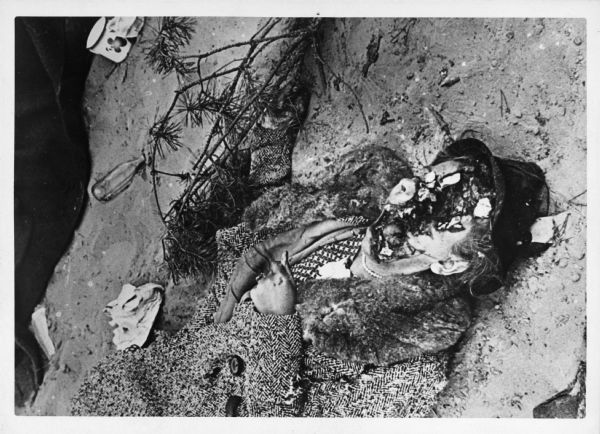
Look up the pictures if you think Hitler was exaggerating about Polish barbarity. And consider why the West has completely covered and ignored this paramount fact of Polish aggression against Germans that was the impetus for Hitler’s attack on Poland. We know from the sources that Hitler made the final decision to attack Poland, after so many attempts at reconciliation, when the report of the Polish slaughter of Germans came across his desk. Why does the West conceal these crucial facts?
Two days after German troops crossed the fictitious Polish border created out of thin air by the League of Nations to reunite Danzig with the Reich and halt the slaughter of his people who were petitioning for his help, something amazing happened that has been swept under the rug. On September 3, 1939, before a peace conference called by Italy could be convened, World War II really began as Britain and France declared war on Germany. Then, on September 7, 1939, French troops marched into German territory, occupying an 8-km swatch of territory in the Saar region.
Did you know that France invaded Germany on September 7, 1939? Did your history teacher teach you that? Have you ever seen that in a Hollywood film? Have you ever heard your local politician talk about the war started by France and Britain? Let’s be clear, the war was a local conflict between two nations only, Germany and Poland – not Germany and France or Britian. Yet, unprovoked, France invaded Germany while simultaneously declaring war on her with Great Britain.
These are facts you can’t refute. It is truth, not propaganda. Be intellectually honest and do your own research and investigate the claims.
Germany’s great “crime” which necessitated her brutal destruction was bucking the Marxist trend and wanting Independence from a one-world internationalist system with which it fundamentally disagreed. For instance, Germany destroyed the Communist Party, outlawing or driving out their subversive organizations such as Antifa and the Frankfurt School. Hitler shut down the smut plays and pornographic theater performances that made Berlin infamous during the Weimar days. Freemasonry was banned and its lodges were opened to the public to show the type of subversive, anti-Christian rituals being performed inside.
The international bankers were limited a great deal. Usury was banned. Crony-capitalism, though not extinguished, was chipped away at. Germany pulled itself out of economic depression and became the #1 economy on earth at a time when millions were in abject poverty in the United States.
Personal Freedoms were enlarged and intellectual pursuits and debates were encourages. Gun rights were expanded. Yes, Alex Jones, Hitler expanded gun rights that had been limited under the Weimar Marxists; he didn’t “take the guns” from German citizens who actually enjoyed shooting clubs and private firearms. Hitler himself, a veteran, carried.
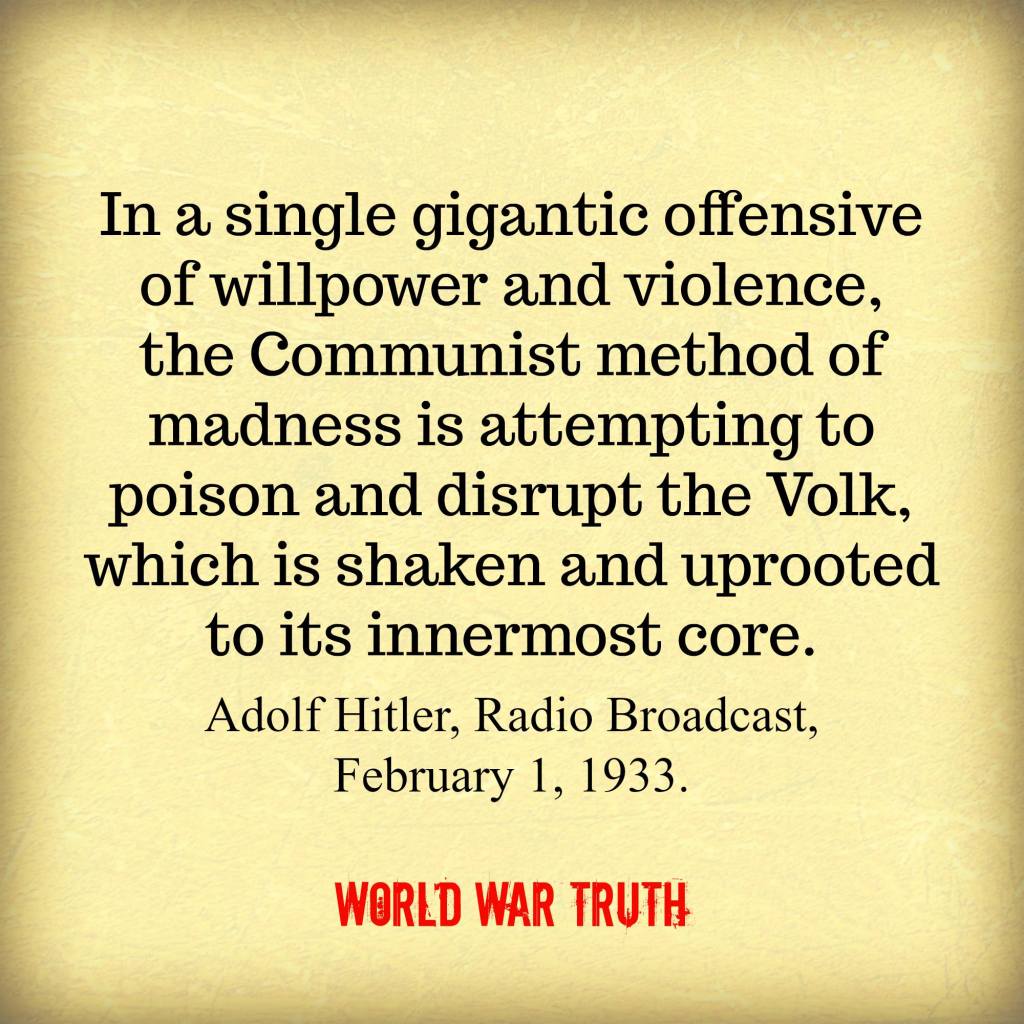
Culturally, Hitler transformed Germany from Marxist decadency to Christian strength. Traditional families were supported as programs to promote motherhood, to get women out of the workforce and back into the home where God set them, and to celebrate marriage, were initiated. A premium was set on individual initiate and a meritocratic system was erected. Honor, honesty, boldness, truthfulness, beauty, intelligence, and strength, were just a few of the virtues promoted. Christianity was supported, protected, and promoted by the state. Hitler himself was a practicing Catholic with good relations with the Vatican, the German army went into battle with the motto “God With Us” on their belt buckles, the German military opened the Christian churches that had been closed by the Judeo-Bolshevik Soviets in Eastern Europe, and so on.
Dr. Robert Ley, a leader in the Labor Front in Germany during Hitler’s time, made this comment in a newspaper, as reported by Time in 1940:
“Money rules the world, but National Socialism does not acknowledge the rule of money. . . . The Führer said, ‘I am perhaps the only head of a State who does not even have a bank account.’ The National Socialist State leadership has not only destroyed plutocracy in Germany and allotted to money its proper role in economy, it also has freed the workers from the exploiters’ fetters. The National Socialist economic order has freed itself, not only from the fetters of money in our land, but—and that is decisive—from the fetters of international money rule.”
Plutocracy, if the term is not familiar, means “rule by the wealthy” or “an elite or ruling class of people whose power derives from their wealth.” Dr. Joseph Goebbels published a pamphlet titled The War Goal of World Plutocracy exposing many of the Elite’s plans to decimate Germany. He spoke often in speeches about the danger of the alliance of Western plutocrats and Eastern communists. He presented Germany as an alternative to this alliance of warmongering tyrants wearing different masks. In one of his most famous speeches, he laid out the argument, first laid out by Hitler, thus:
“The German people, in any event, is unwilling to bow to this danger. Behind the oncoming Soviet divisions we see the Jewish liquidation commandos, and behind them terror, the specter of mass starvation and complete anarchy. International Jewry is the devilish ferment of decomposition that finds cynical satisfaction in plunging the world into the deepest chaos and destroying ancient cultures that it played no role in building.
“We also know our historic responsibility. Two thousand years of Western civilization are in danger. One cannot overestimate the danger. It is indicative that when one names it as it is, International Jewry throughout the world protests loudly. Things have gone so far in Europe that one cannot call a danger a danger when it is caused by the Jews.
“That does not stop us from drawing the necessary conclusions. That is what we did in our earlier domestic battles. The democratic Jewry of the “Berliner Tageblatt” and the “Vossischen Zeitung” served communist Jewry by minimizing and downplaying a growing danger, and by lulling our threatened people to sleep and reducing their ability to resist. We could see, if the danger were not overcome, the specter of hunger, misery, and forced labor by millions of Germans. We could see our venerable part of the world collapse, and bury in its ruins the ancient inheritance of the West. That is the danger we face today.

“My second thesis: Only the German Reich and its allies are in the position to resist this danger. The European nations, including England, believe that they are strong enough to resist effectively the Bolshevization of Europe, should it come to that. This belief is childish and not even worth refuting. If the strongest military force in the world is not able to break the threat of Bolshevism, who else could do it? [The crowd in the Sportpalast shouts “No one!”]. The neutral European nations have neither the potential nor the military means nor the spiritual strength to provide even the least resistance to Bolshevism. Bolshevism’s robotic divisions would roll over them within a few days. In the capitals of the mid-sized and smaller European states, they console themselves with the idea that one must be spiritually armed against Bolshevism. That reminds us of the statements by bourgeois parties in 1932, who thought they could fight and win the battle against communism with spiritual weapons. That was too stupid even then to be worth refuting. Eastern Bolshevism is not only a doctrine of terrorism, it is also the practice of terrorism. It strives for its goals with an infernal thoroughness, using every resource at its disposal, regardless of the welfare, prosperity or peace of the peoples it ruthlessly oppresses. What would England and America do if, in the worst case, Europe fell into Bolshevism’s arms? Will London perhaps persuade Bolshevism to stop at the English Channel? I have already said that Bolshevism has its foreign legions in the form of communist parties in every democratic nation. None of these states can think it is immune to domestic Bolshevism. In a recent by-election for the House of Commons, the independent, that is communist, candidate got 10,741 of the 22,371 votes cast. This was in a district that had formerly been a conservative stronghold. Within a short time, 10,000 voters, nearly half, had been lost to the communists.
“That is proof that the Bolshevist danger exists in England too, and that it will not go away simply because it is ignored. We place no faith in any territorial promises that the Soviet Union may make. Bolshevism set ideological as well as military boundaries, which poses a danger to every nation. The world no longer has the choice between falling back into its old fragmentation or accepting a new order for Europe under Axis leadership. The only choice now is between living under Axis protection or in a Bolshevist Europe.
“I am firmly convinced that the lamenting lords and archbishops in London have not the slightest intention of resisting the Bolshevist danger that would result were the Soviet army to enter Europe. Jewry has so deeply infected the Anglo-Saxon states both spiritually and politically that they are no longer have the ability to see the danger. It conceals itself as Bolshevism in the Soviet Union, and plutocratic-capitalism in the Anglo-Saxon states. The Jewish race is an expert at mimicry. They put their host peoples to sleep, paralyzing their defensive abilities. (Shouts from the crowd: “We have experienced it!”). Our insight into the matter led us to the early realization that cooperation between international plutocracy and international Bolshevism was not a contradiction, but rather a sign of deep commonalities. The hand of the pseudo-civilized Jewry of Western Europe shakes the hand of the Jewry of the Eastern ghettos over Germany. Europe is in deadly danger.”
Yes, the Satanic world conspiracy (the leaders of whom were indisputably Jewish) was at the gates, and the Allies made a treasonous alliance with them. Only the Germans, led by Hitler, stood in the gap to fight them. Fight them they did. They rooted them out of Germany. They extinguished their Red terror in their nation. They rounded up the Marxist agitators, terrorists, and subversives. They set up an alternative state that was neither governed by plutocrats or by communist commissars. They cut through the fog of lies blinding the minds of millions with the sword of truth, branding themselves eternal enemies in the eyes of the communist world conspiracy.

Hitler’s adjustments to the international status quo were absolutely remarkable and were a thorn in the international Establishment’s side. They were only rivaled by his adjustments to German domestic life. These represented nothing short of a social, cultural, spiritual, political, and economic revolution. The brilliant book Hitler’s Revolution by Richard Tedor is a book that belongs on your bookshelf if you want to truly understand the massive impact National Socialism had on transforming, for the better, German society, and why the other great nations were so eager to demonize and destroy it. Here’s an excerpt:
“During the first half of the 20th Century, two world wars ultimately imposed democratic governments on European states that had been pursuing a separate way of life. One of the most successful weapons in the arsenal of democracy was atrocity propaganda. It demonized the enemy, motivating Allied armies and promoting their cause abroad. It justified the most ruthless means to destroy him. It defined the struggle as one of good versus evil, simplifying understanding for the populations of the United States and the British Commonwealth. The atrocities that Allied propagandists attribute to Germany, the backbone of resistance against Western democracy, remain lavishly publicized to this day. Conducted more zealously by the entertainment industry than by historians, this is largely an emotional presentation. The lurid appeal negates for the future a logical, impartial evaluation of political alternatives. This is unfortunate, since comparison is one of life’s best tools for learning.
“It is a common trait of human nature to often judge the validity of an argument less by what is said than by who is saying it. Casting doubt on the personal integrity of an opponent can be more influential than rational discussion to refute his doctrines. In Adolf Hitler, Germany had a wartime leader whose concept of an authoritarian, socialist state represented a serious challenge to democratic opinion. Indignant that anyone could harbor such views in so enlightened an age, and especially that he could promote them so effectively, contemporary historians provide a myriad of theories for his dissent. Thus we read that Hitler’s obsession with black magic and astrology impelled him to start the war, he was mentally deranged due to inbreeding in the family, he was embarrassed by his Jewish ancestry, he was homosexual, he had a dysfunctional childhood, he became frustrated by failing as an artist, he was born with underdeveloped testicles and so forth.
“It would be more useful for the authors of such legends to question for example why, after the victorious Allies established democratic governments throughout Europe in 1919, this state form became practically extinct there in 20 years. Russia, Italy, Hungary, Poland, Lithuania, Austria, Germany, Greece, Spain, Slovakia, and soon thereafter France adopted authoritarian regimes. Several of these countries closed ranks with Germany. Hitler gave viable, popular political form to a growing anti-liberal tendency on the continent. Volunteers from over 30 nations enlisted to fight in the German armed forces during World War II. Only by the sword did the Western democracies and their Soviet ally bring them to heel. Surely the motives of such men merit investigation. Simply dismissing the leader who harnessed and directed these dynamic human resources as a demented megalomaniac is no explanation. . . .
“National Socialism was not a spontaneous phenomenon that derailed Germany’s evolution and led the country astray. It was a movement anchored deeply in the traditions and heritage of the German people and their fundamental requirements for life. Adolf Hitler gave tangible political expression to ideas nurtured by many of his countrymen that they considered complimentary to their national character. Though his “opposition” party’s popular support was mainly a reaction to universal economic distress, Hitler’s coming to power was nonetheless a logical consequence of German development.

“True to the nationalist trend of his age, Hitler promoted Germany’s self-sufficiency and independence. His party advocated the sovereignty of nations. This helped place the German realm, or Reich, on a collision course with a diametrical philosophy of life, a world ideology established in Europe and North America for well over a century: liberalism. During Hitler’s time, it already exercised considerable influence on Western civilization. It was an ambitious ideal, inspiring followers with an international sense of mission to spread “liberty, equality, and brotherhood” to mankind. National Socialism rejected liberal democracy as repugnant to German morality and to natural order. . . .
“Hitler argued that the absence of sufficient state controls in a democracy enables the wealthy class to manipulate the economy, the press and elected representatives for its own gain. A widening gulf between poverty and affluence develops, gradually dragging the working class to ruin. Addressing Berlin armaments workers in December 1940, he claimed that the public’s voice in democratic systems is an illusion: “In these countries, money in fact rules. That ultimately means a group of a few hundred persons who possess enormous fortunes. As a result of the singular construction of the state, this group is more or less totally independent and free. . . . Free enterprise this group understands as the freedom not only to amass capital, but especially to use it freely; that is, free from state or national supervision.
““So one might imagine that in these countries of freedom and wealth, unheard-of public prosperity exists. . . . On the contrary, in those countries class distinctions are the most crass one could think of: unimaginable poverty on one hand and equally unimaginable riches on the other. These are the lands that control the treasures of the earth, and their workers live in miserable dumps. . . . In these lands of so-called democracy, the people are never the primary consideration. Paramount is the existence of those few who pull the strings in a democracy, the several hundred major capitalists. The broad masses don’t interest them in the least, except during elections.”
“Die SA discussed another fault of parliamentary systems particularly irksome to Hitler: “There is practically no responsibility in a democracy. The anonymity of the majority of the moment decides. Government ministers are subject to it, but there is no opportunity to hold this majority responsible. As a result, the door is open to political carelessness and negligence, to corruption and fiscal mismanagement. The history of democracies mostly represents a history of scandals.” According to Was will Roosevelt?, “Corruption has spread so much that . . . no American citizen gets upset anymore over incidents of shameless corruption in civil service, because mismanagement is regarded as a natural phenomenon of Government.” Hitler once recalled how a visit in his youth to the Austrian parliament revealed “the obvious lack of responsibility in a single Person.” Germanisches Leitheft stated, “Absence of responsibility is the most striking indication of a lack of morality.”
“Democracy failed because it was a product of liberalism. Focus on the individual led to “self-idolatry and renunciation of the community, the unraveling of healthy, orderly natural life,” according to the German army brochure Wofür kämpfen wir? (What do we fight for?). “The inordinate value placed on material possessions from the economic standpoint formed social classes and fractured the community. Not those of good character enjoyed greater respect, but the rich. . . . Labor no longer served as a means to elevate the worth of the community, but purely one’s own interests. Commerce developed independently of the people and the state, into an entity whose only purpose was to pile up fortunes.” The periodical NS Briefe (NS Essays) summarized, “Freedom cannot be made identical to arbitrariness, lack of restraint and egoistic inconsideration.”
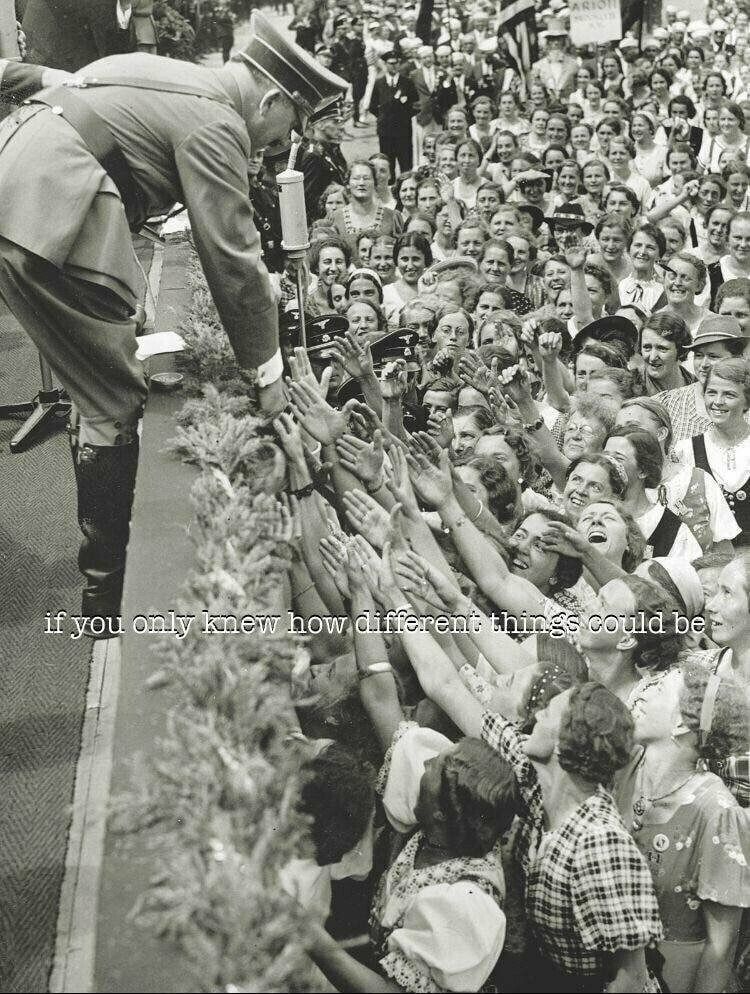
“Hitler regarded liberalism’s de-emphasis on communal responsibility as an obstacle to national unity. He endorsed the words of the statesman Niccolò Machiavelli: “It is not the well-being of the individual, but the well-being of all that makes us great.” Hitler took the rein of government in hand in a liberal political climate. To overcome the liberal ideal, which for many was freedom personified, he introduced an alternative state form. It created opportunities for self-development, but also instructed Germans in obedience. In so doing, Hitler eventually achieved the parity between individual liberty and state authority long contemplated by the German intellectual movement of the previous century. . . .
“There is considerable difference in the socialism of Hitler and that of Marxist doctrine. Die SA explained that the objective of a socialist state is “not the greatest possible good fortune of the individual or a particular party, but the welfare of the whole community.” Marx’s purely economic socialism “stands against private property. . . and private ownership.” Marx saw socialism as international, unifying the world’s working class people who were social pariahs in their own country. He therefore considered nationalism, advocating the interests and independence of one’s own nation, incompatible with socialist ideals. Die SA argued that since socialism really stands for collective welfare, “Marxist socialism divides the people and in this way buries any prerequisite for achieving genuine socialist goals.”
“Hitler saw nationalism as a patriotic motive to place the good of one’s country before personal ambition. Socialism was a political, social and economic system that demanded the same subordination of self-interest for the benefit of the community. As Hitler said in 1927, “Socialism and nationalism are the great fighters for one’s own kind, are the hardest fighters in the struggle for survival on this earth. Therefore they are no longer battle cries against one another.” Die SA summarized, “Marxism makes the distinction of haves and have-nots. It demands the destruction of the former in order to bring all property into possession of the public. National Socialism places the concept of the national community in the foreground. . . . The collective welfare of a people is not achieved through superficially equal distribution of all possessions, but by accepting the principle that before the interests of the individual stand those of the nation.”
“It should be noted that in the Soviet Union, the flagship Marxist state, the regime dealt with the non-proletariat far more harshly than what downtrodden labor suffered during the Industrial Revolution in Western countries. The Soviet police official Martyn Latsis for example, defined the criteria for trials of dissidents: “Don’t seek proof of whether or not he rose against the Soviet with weapon or word. You must first ask him what class he belongs to, what extraction he is, what education and what occupation he has. These questions should decide the fate of the accused.” The Russian historian Dimitri Volkogonov wrote that Soviet purges targeted “the most energetic, most capable, frugal and imaginative” elements in society. Systematic mass starvation, imprisonment, deportation, and execution in the Marxist utopia so decimated the Russian population that the Soviet dictator, Joseph Stalin, forbade the 1937 census from being published. Der Schulungsbrief stated in a 1942 issue, “The senseless extermination of all intelligence and talent, replacing every impulse of personality with passive herd mentality, has wiped out any natural creative aptitude” in Russia.
“Hitler regarded Marxist economic policy as no less repugnant to genuine socialism as the concept of class warfare was. Marx advocated deprivatizing all production and property. State control would supposedly insure equitable distribution of manufactured goods and foodstuffs, and protect the population from capitalist exploitation. Hitler advocated private ownership and free enterprise. He believed that competition and opportunities for personal development encourage individual initiative. He said in 1934, “on one hand, the free play of forces must be guaranteed as broad a field of endeavor as possible. On the other, it should be stressed that this free play of forces must remain for the person within the framework of communal goals, which we refer to as the people and the national community. Only in this way can we attain . . . the highest level of human achievement and human productivity.” . . . .
“A definitive characteristic of National Socialism was its rejection of foreign beliefs, customs and ideas within the German community. It holds that a nation consists of its blood and soil: an ethnically homogenous people and the land they cultivate, the domain that provides shelter, refuge and nourishment from the soil where their ancestors lie buried. Through self-development will a people realize their potential; through awareness of their intrinsic identity will generations fulfill the role nature and providence intended. The NSDAP held that every nation exhibits a collective personality. The influence of foreign peoples whose life experience, environment and ancestry formed them differently will debauch the nation and is hence immoral. Leers saw the introduction of liberalism and Marxism to Germany during the 19th Century as “threatening to destroy our own values. . . . The history of the German people is a centuries-long struggle against spiritual foreign penetration into the realms of politics, law, tradition and our way of life, a struggle against the destruction of our race and perversion of our souls”” (Richard Tedor, Hitler’s Revolution: Ideology, Social Programs, Foreign Affairs, 6-8, 14-16, 25-27).
All of these things listed above went against the soul-destroying trends gripping other parts of Europe, North America, and the world at the time. Hitler’s Germany went against everything the communist conspirators against mankind stood for. It was a kink in their generational plan for world control. They couldn’t allow Germany to live and remain a beacon for those who wanted Independence from the international bankers, who wanted to enjoy the fruit of their labor, who wanted to escape cultural decadence, and who wanted stability. See the vile book by Jewish author Theodore Kaufman Germany Must Perish! to see an example of their wicked mindset and genocidal desires.

Most of the things that American “conservatives” are fighting for today were things that Hitler and his movement fought for and, temporarily, achieved; that is, individual responsibility, community and governmental accountability, the reining in of massive corporations, emphasis on personal character and merit, rejection of Marxism and atheism, abolition of Freemasonry, the driving out of LGBT maniacs with their cultural Marxist indoctrination programs and literature, protection of private property, public protection of morality, prosecution of traitors and slanderers, halting illegal immigration and deporting illegals, placing a premium on Germany-first policies, making German citizenship valuable and special, uniting society across class lines, increasing education opportunities, lowering the national and personal debt rates, ending unethical banking practices like usury, practically eliminating unemployment, removing Germany from internationalist League of Nations oversight, increasing gun rights, and so forth.
We, the Allies, ended that. We, the Allies, stopped their stunning progress. We took all of these amazing developments and “liberated” them into the trash bin of history. We bombed the most advanced and civilized nation of Europe into smithereens and replaced a forward-thinking anti-Marxist regime with Soviet control in East Germany and a puppet internationalist socialist regime in the West. Truly, we defeated the wrong enemy in World War II, as General George Patton famously remarked at the close of that shameful war.
Let it sink it: We annihilated a nation set up on Christian values, that had high morals, that cultivated strong traditional families, that heatedly opposed Marxism, Freemasonry, crony-capitalism, big banks, internationalism, and the type of LGBT madness we are grappling with today, that was Germany-first and cared for its people’s interests above the interests of foreigners, and that called for peace until finally pushed to war to save its people from slaughter. How dare we claim we “liberated” Europe! We destroyed Europe!
Regardless of the intentions and thoughts of the men who waded into a hail of gunfire that fateful day, D-Day was a huge step forward for the forces of world domination. It was indeed a “Great Crusade” against civilization and for tyranny. If you invert Ike’s D-Day message, you get closer to the reality:
“In company with our brave Allies and brothers-in-arms on other Fronts, you will bring about the destruction of the German war machine, the elimination of German protection over the oppressed peoples of Europe, and power for ourselves in a Marxist world.”
Celebrate the dead who thought they were doing the right thing, of course, but never forget what they really died for. Never forget we fought and died for the Soviet Union’s survival and the destruction of anti-communist, pro-family, Christian Germany. Never forget we bombed millions of people to death, uprooted their countries, changed their governments without their consent, obliterated their cities and priceless art, repatriated millions of hapless people to bondage in Stalin’s Soviet Union, and deliberately allowed Soviet troops to occupy half of Europe to supposedly “liberate” them. Some “liberation” that was!
Zack Strong,
June 7, 2023





